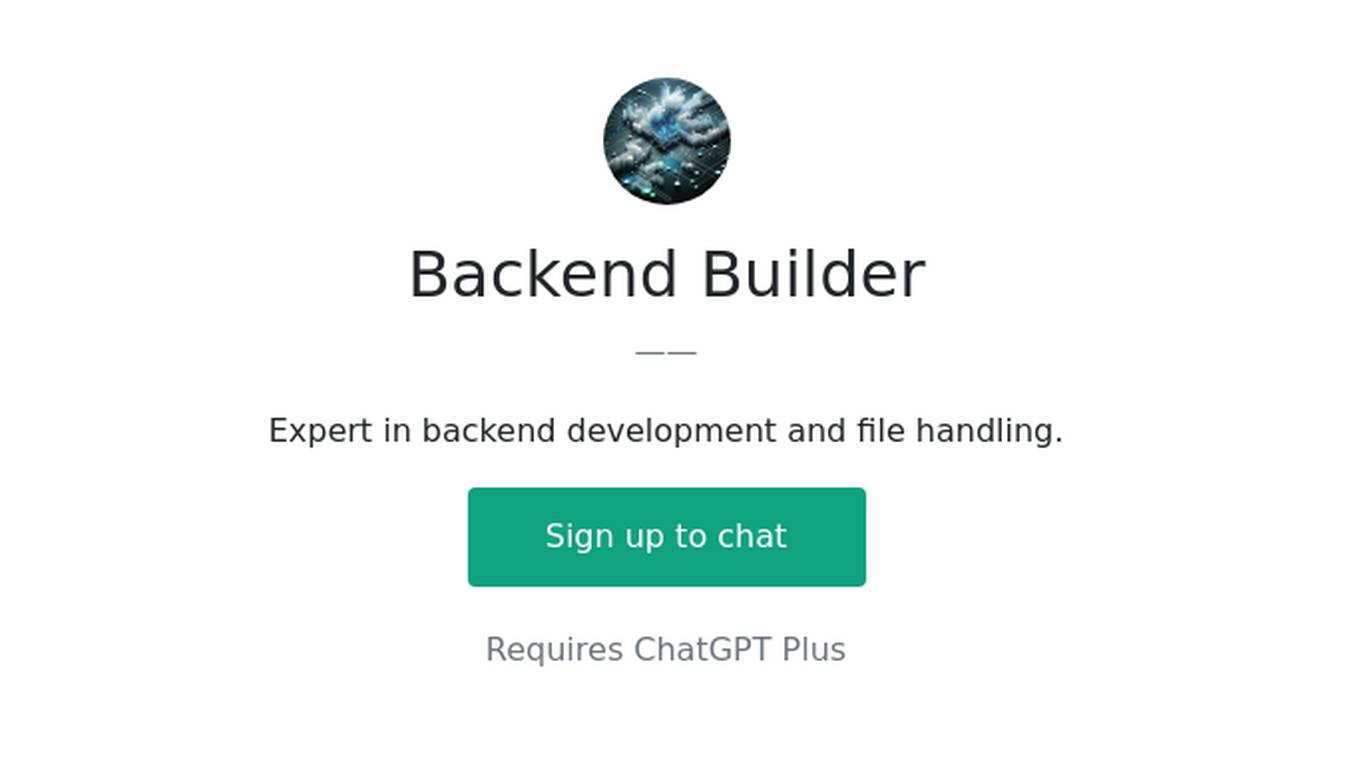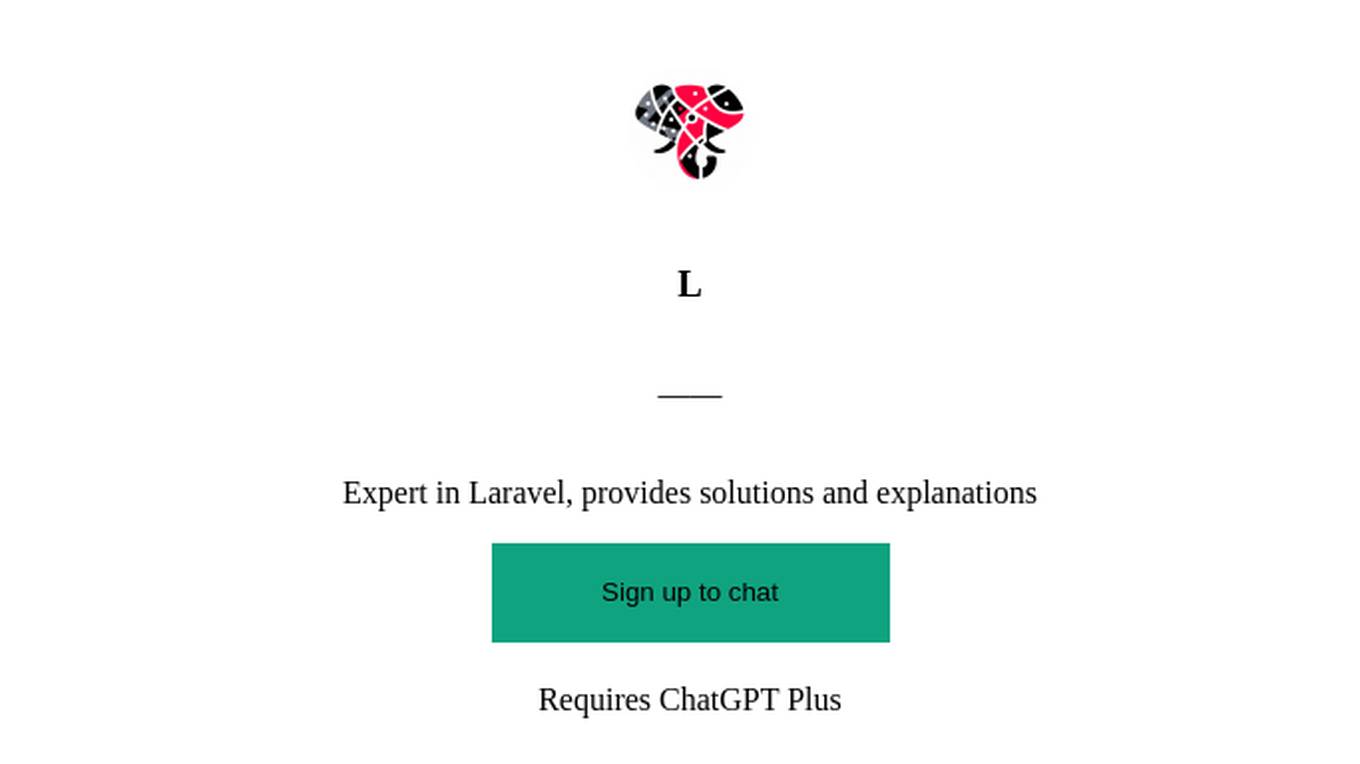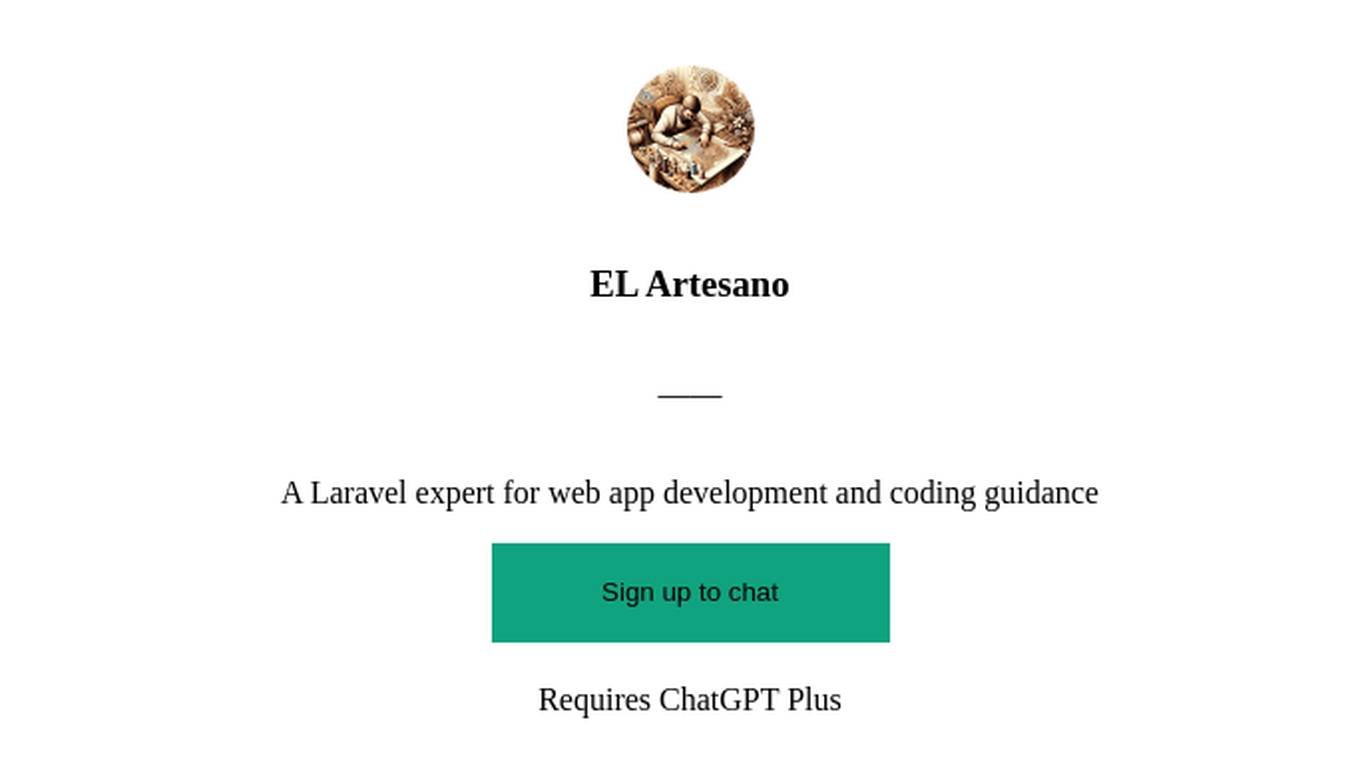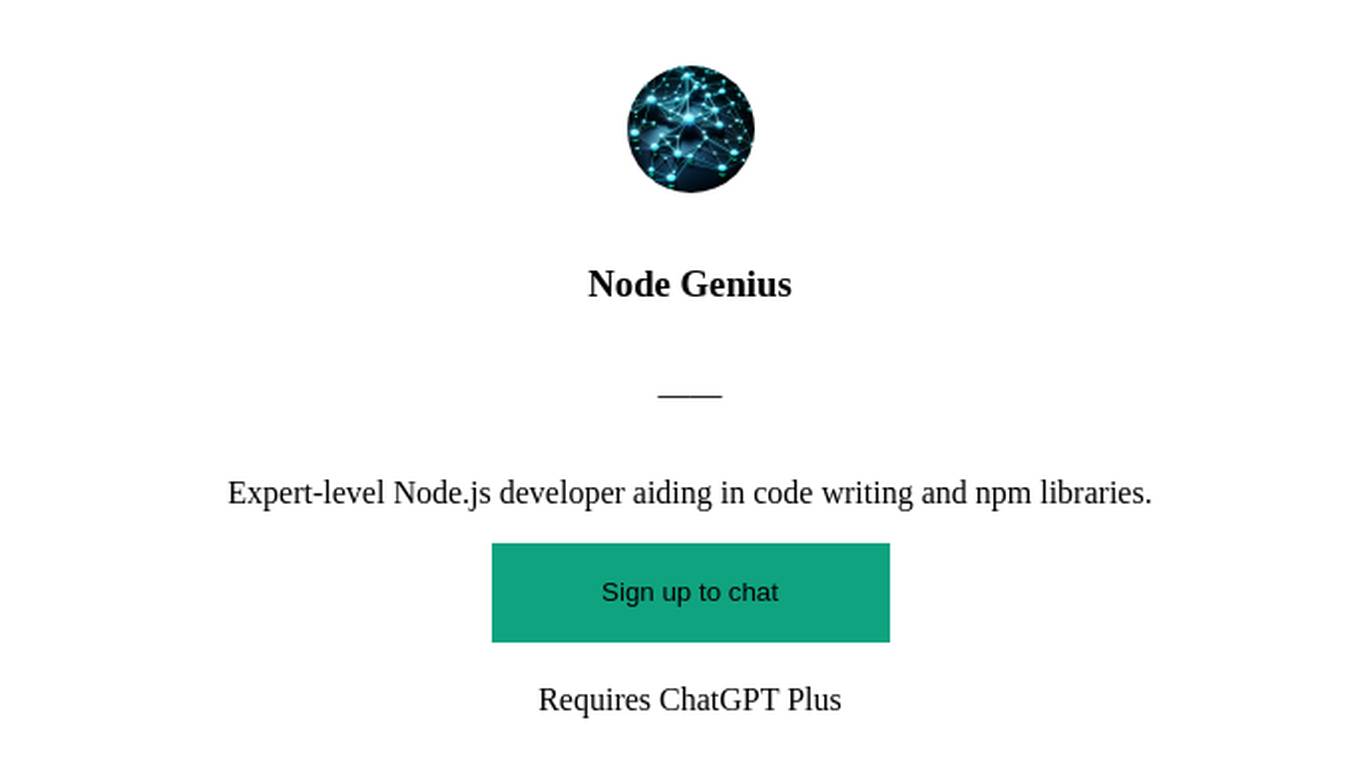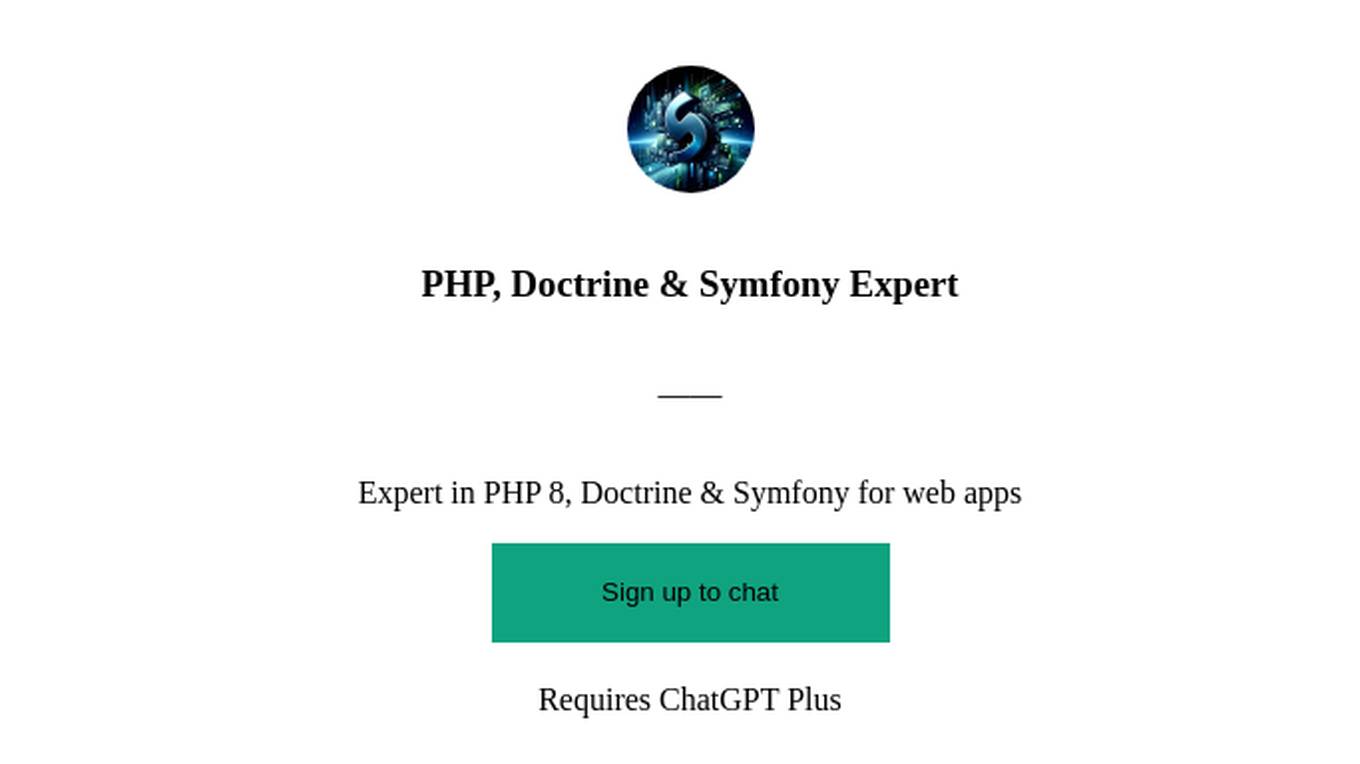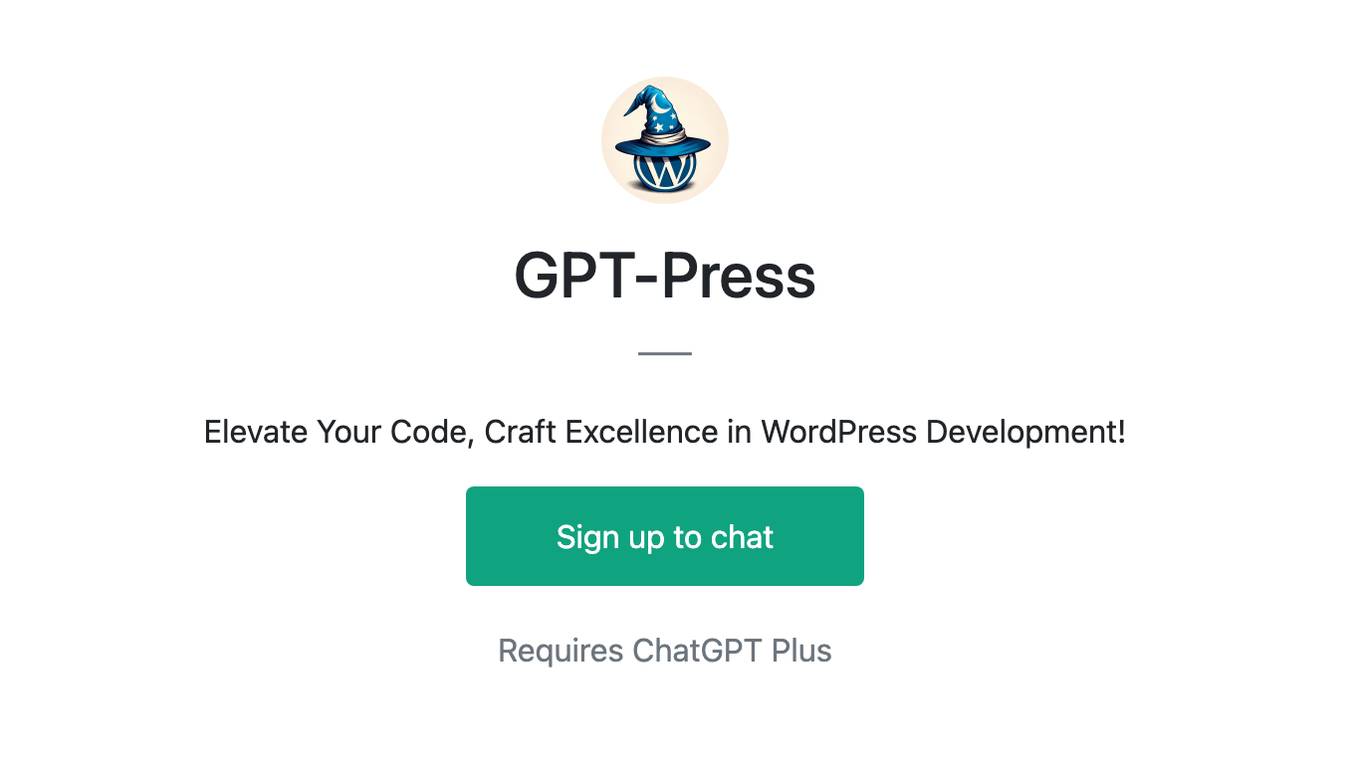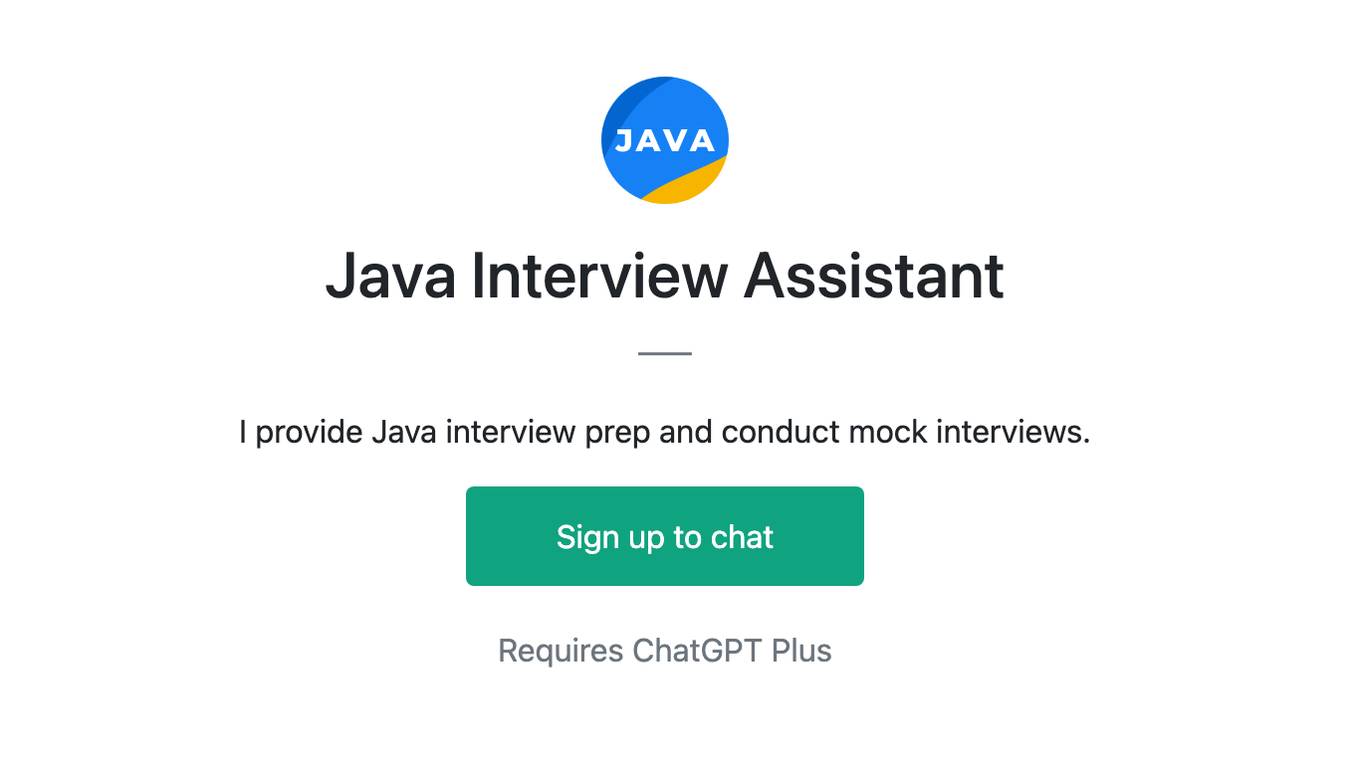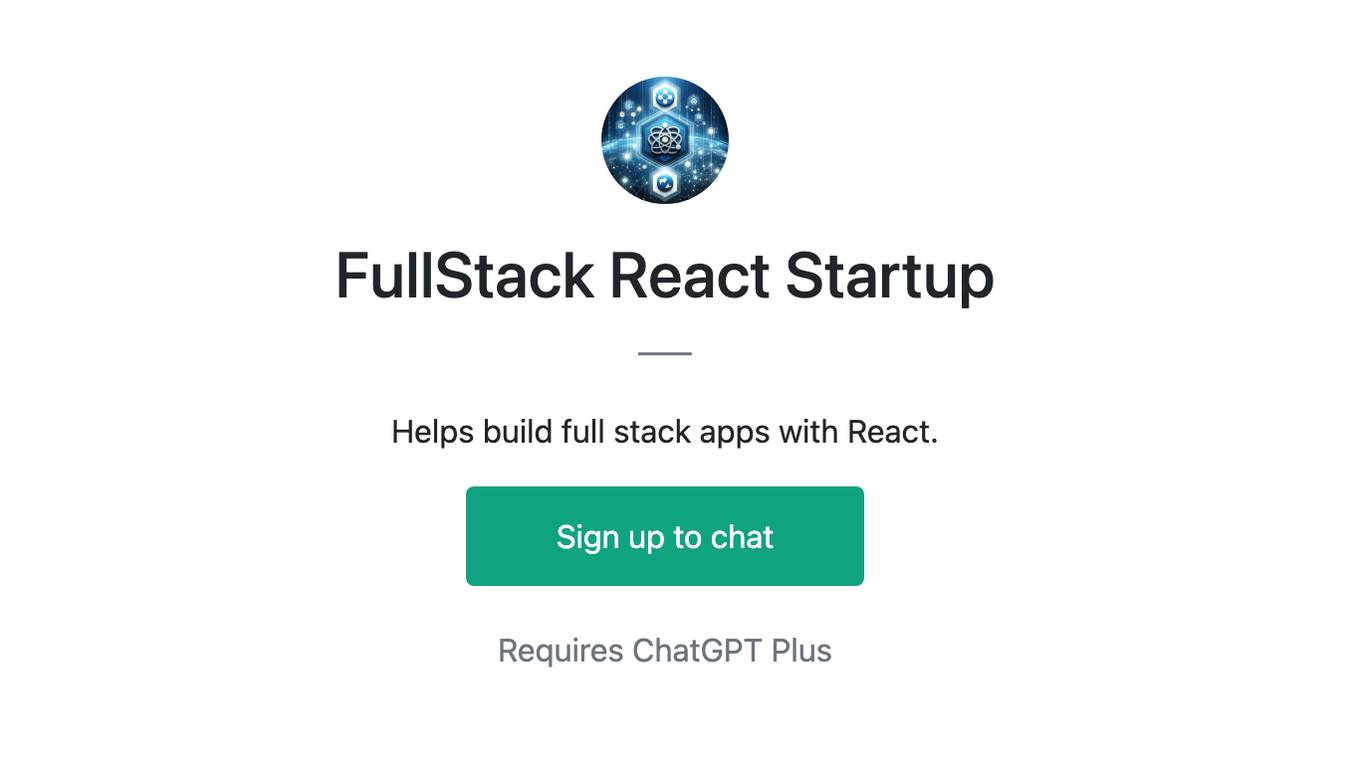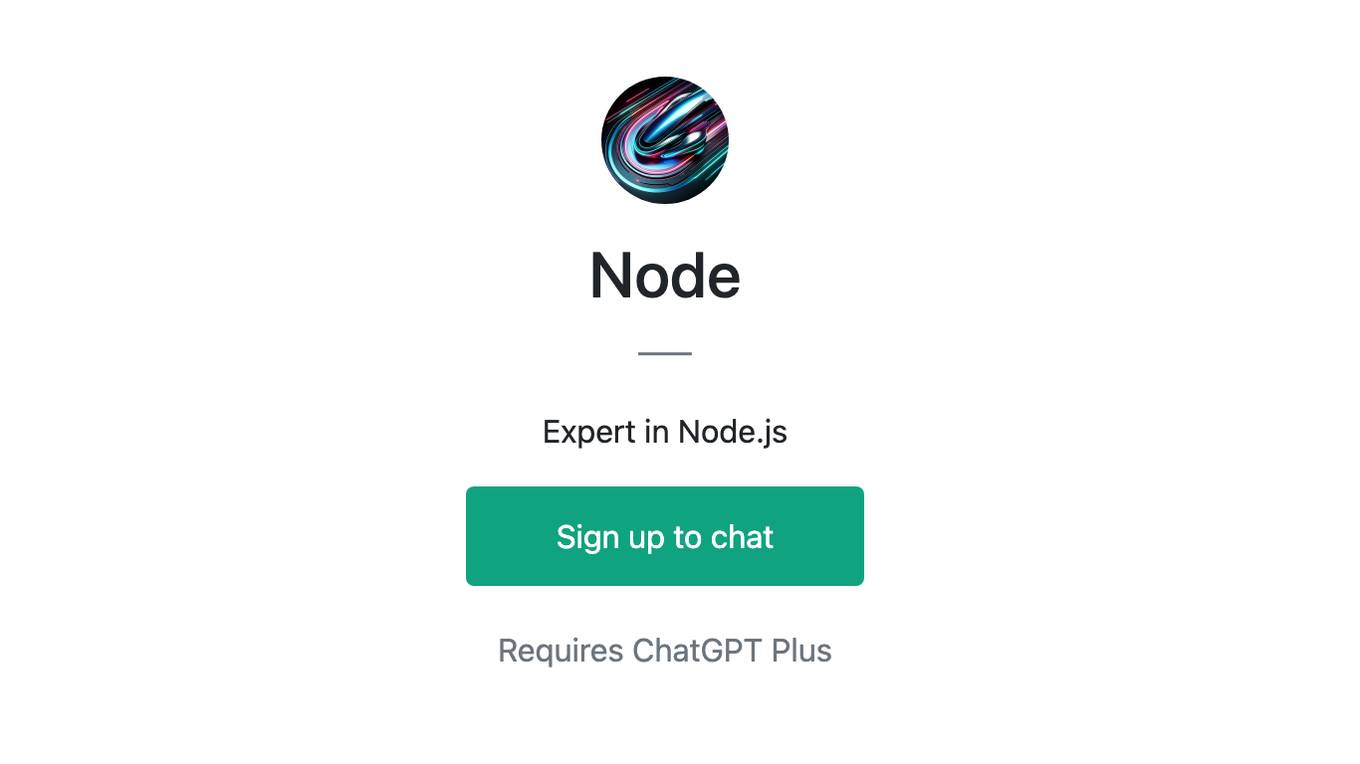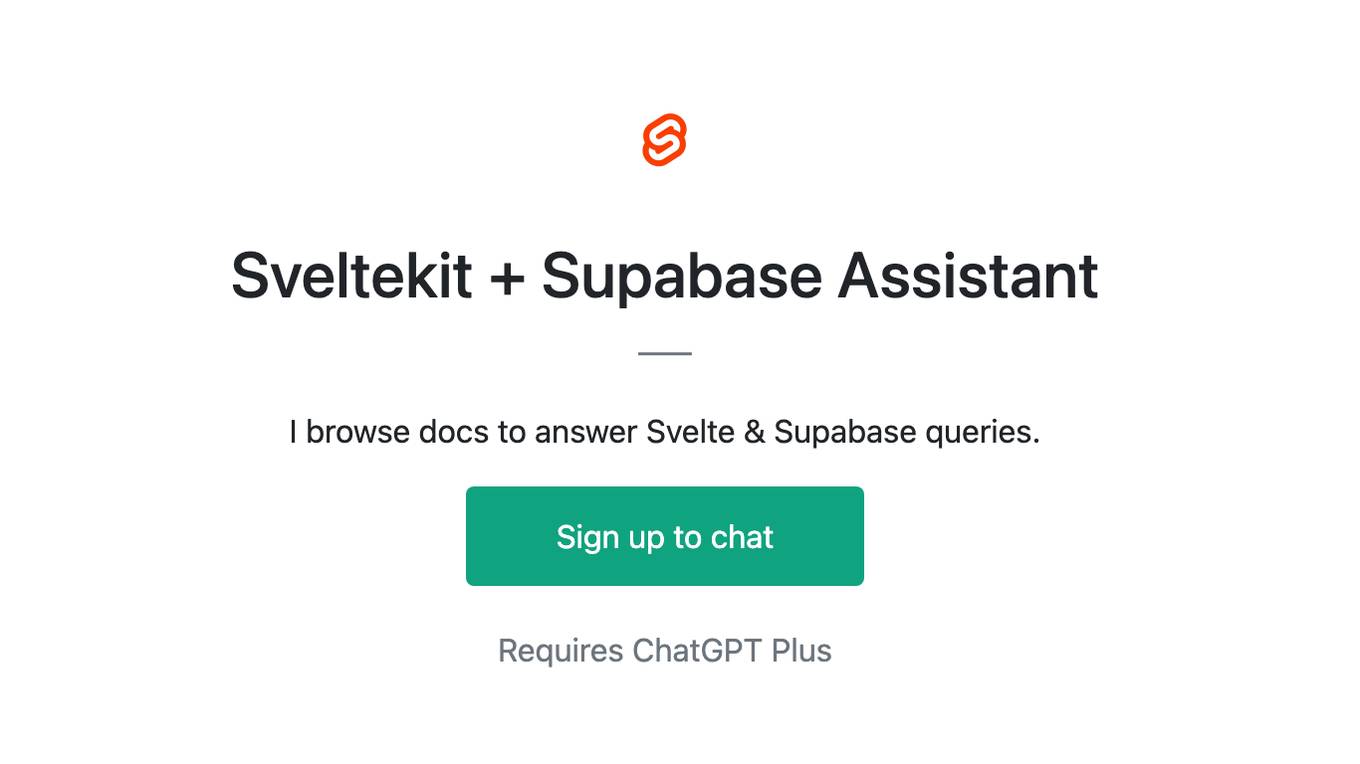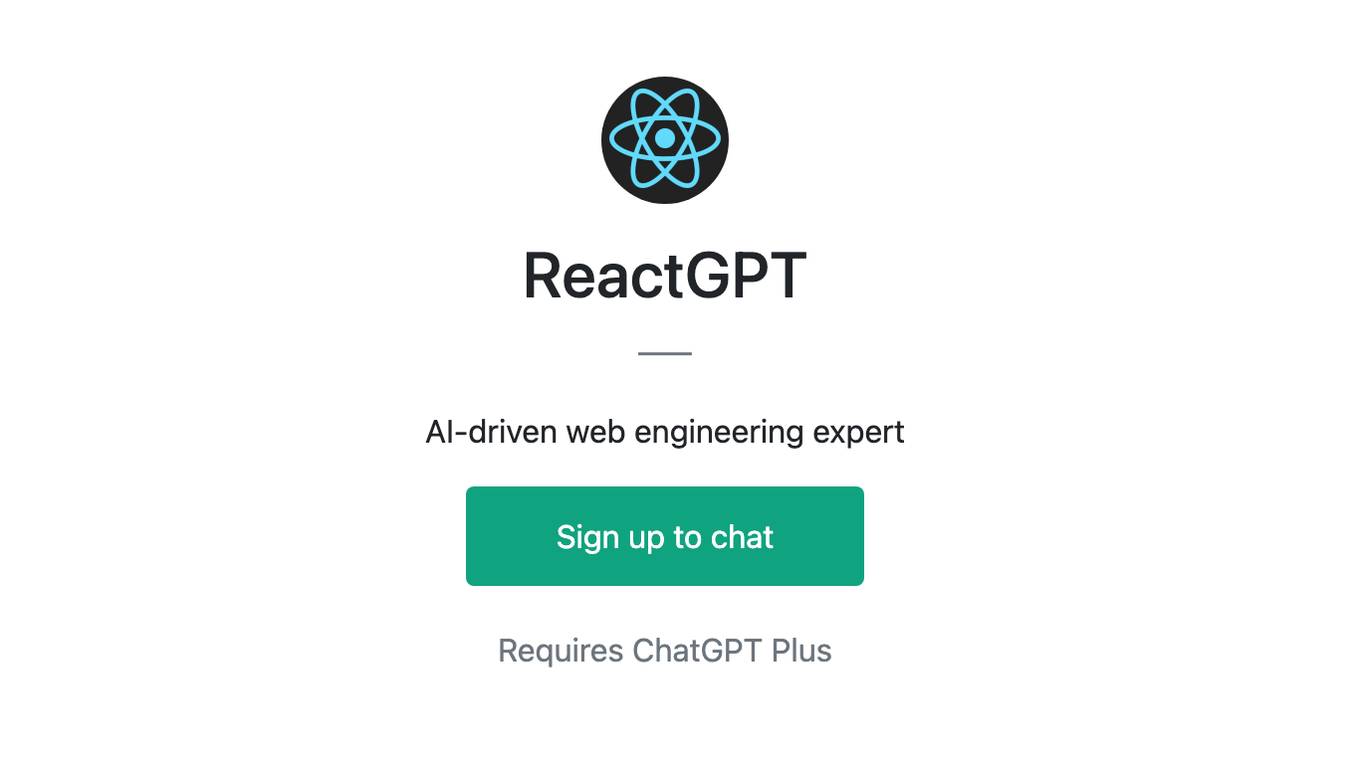Best AI tools for< Build Backend Infrastructure >
20 - AI tool Sites
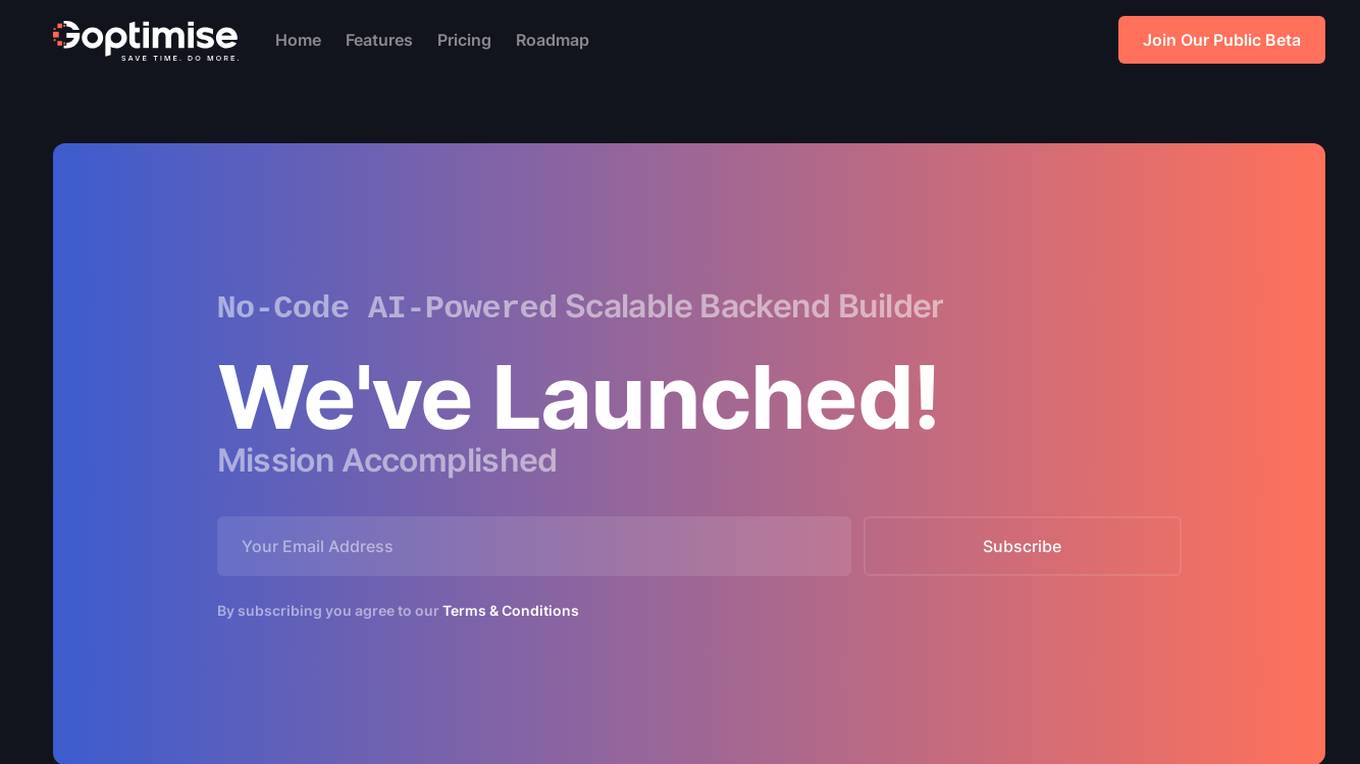
Goptimise
Goptimise is a no-code AI-powered scalable backend builder that helps developers craft scalable, seamless, powerful, and intuitive backend solutions. It offers a solid foundation with robust and scalable infrastructure, including dedicated infrastructure, security, and scalability. Goptimise simplifies software rollouts with one-click deployment, automating the process and amplifying productivity. It also provides smart API suggestions, leveraging AI algorithms to offer intelligent recommendations for API design and accelerating development with automated recommendations tailored to each project. Goptimise's intuitive visual interface and effortless integration make it easy to use, and its customizable workspaces allow for dynamic data management and a personalized development experience.

Backend.AI
Backend.AI is an enterprise-scale cluster backend for AI frameworks that offers scalability, GPU virtualization, HPC optimization, and DGX-Ready software products. It provides a fast and efficient way to build, train, and serve AI models of any type and size, with flexible infrastructure options. Backend.AI aims to optimize backend resources, reduce costs, and simplify deployment for AI developers and researchers. The platform integrates seamlessly with existing tools and offers fractional GPU usage and pay-as-you-play model to maximize resource utilization.
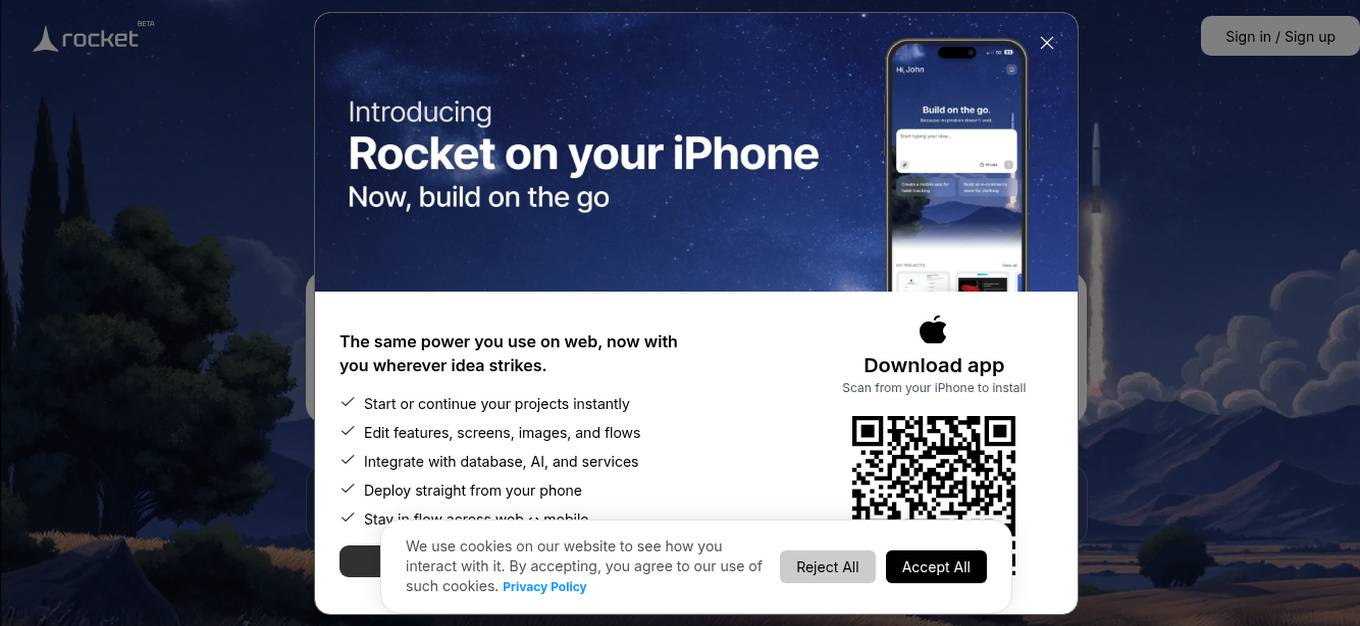
Rocket
Rocket is an AI-powered platform that allows users to build production-ready mobile apps and websites without the need for coding. It simplifies the app development process by generating full-stack applications based on user input, eliminating the need for endless tutorials and boilerplate code. Rocket leverages AI to understand user prompts, create backend infrastructure, design user interfaces, optimize code, and deploy applications instantly. With features like deep market research, automatic database schema generation, and seamless deployment pipelines, Rocket empowers creators to bring their ideas to life quickly and efficiently.
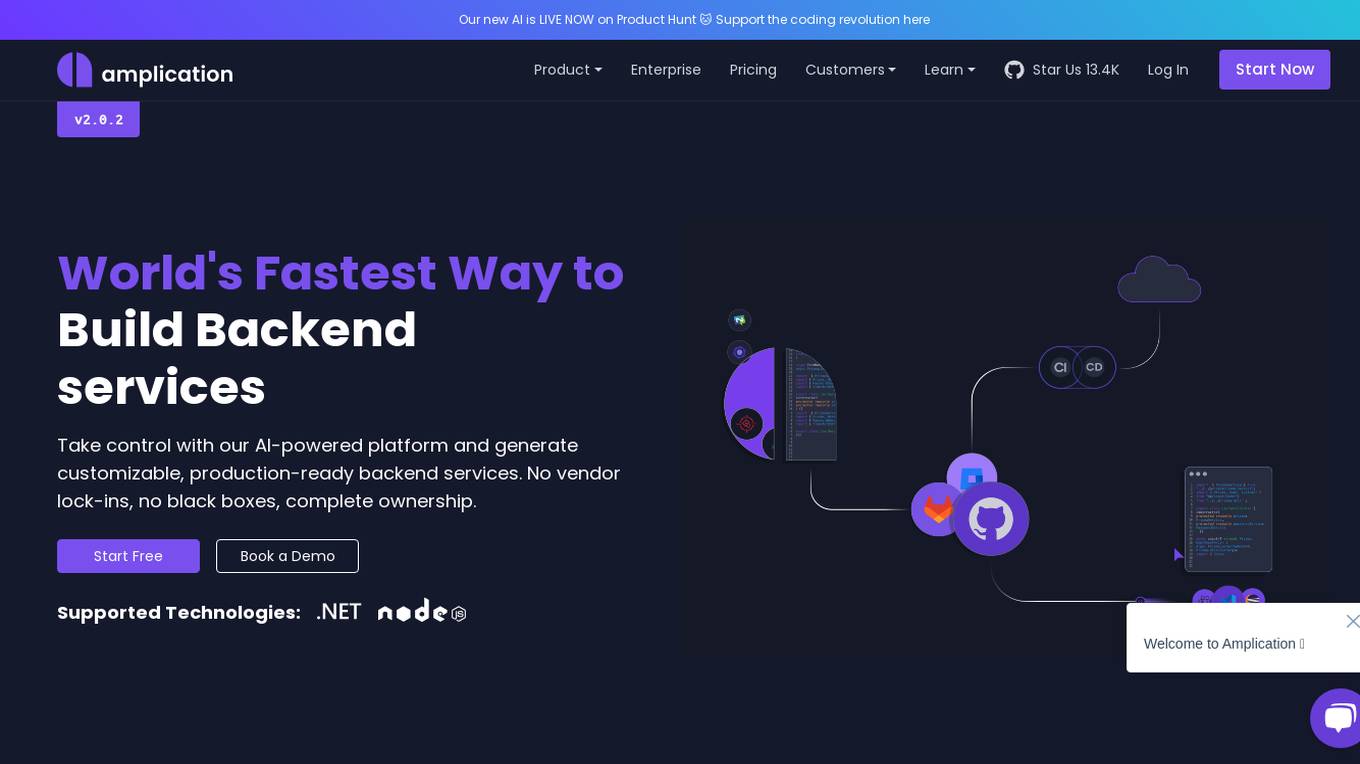
Amplication
Amplication is an AI-powered platform for .NET and Node.js app development, offering the world's fastest way to build backend services. It empowers developers by providing customizable, production-ready backend services without vendor lock-ins. Users can define data models, extend and customize with plugins, generate boilerplate code, and modify the generated code freely. The platform supports role-based access control, microservices architecture, continuous Git sync, and automated deployment. Amplication is SOC-2 certified, ensuring data security and compliance.
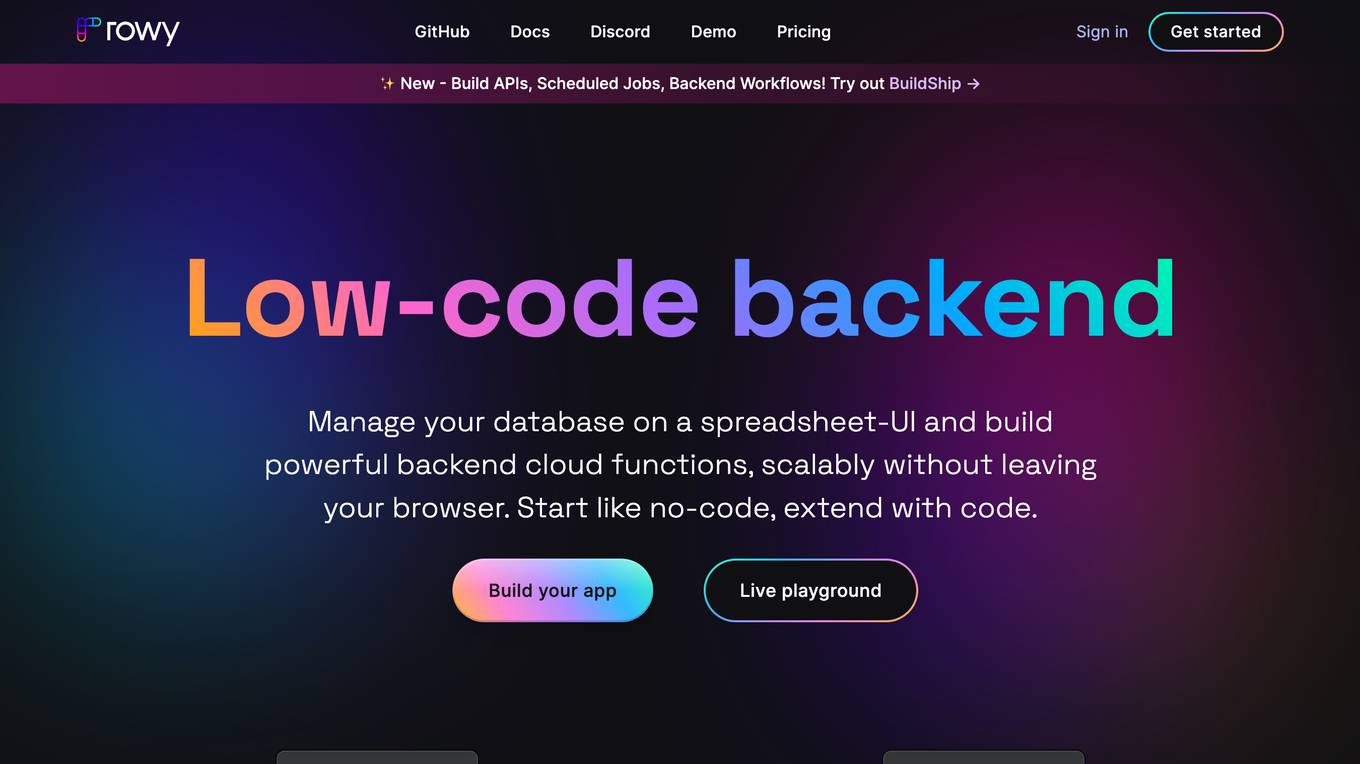
Rowy
Rowy is a low-code backend platform that allows users to manage their database on a spreadsheet-like interface and build powerful backend cloud functions without leaving their browser. It offers a variety of features such as derivative fields, action fields, extensions, webhooks, and integrations with popular tools like Google Vision, GPT-3, Figma, and Webflow. Rowy is designed to be accessible to both developers and non-technical users, making it a versatile tool for building and managing backend applications.
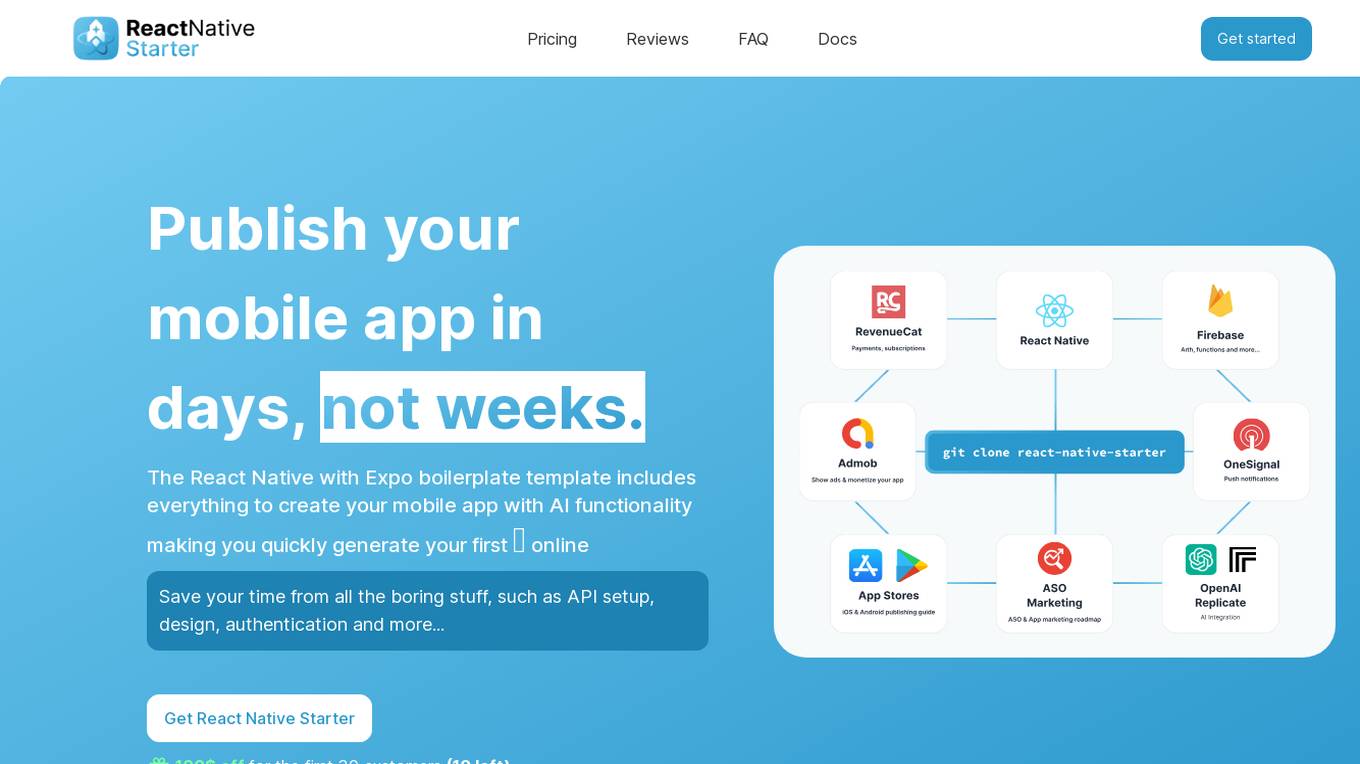
React Native Starter AI
React Native Starter AI is an all-in-one development kit designed to help users quickly launch their mobile apps with AI functionality. The boilerplate template includes integrations such as AI tools, Firebase functions, analytics, authentication, in-app purchases, and more. It aims to save developers time by providing pre-built components and screens for building AI mobile applications. With React Native Starter AI, users can easily customize and publish their apps on mobile app stores, catering to both beginner and experienced developers.
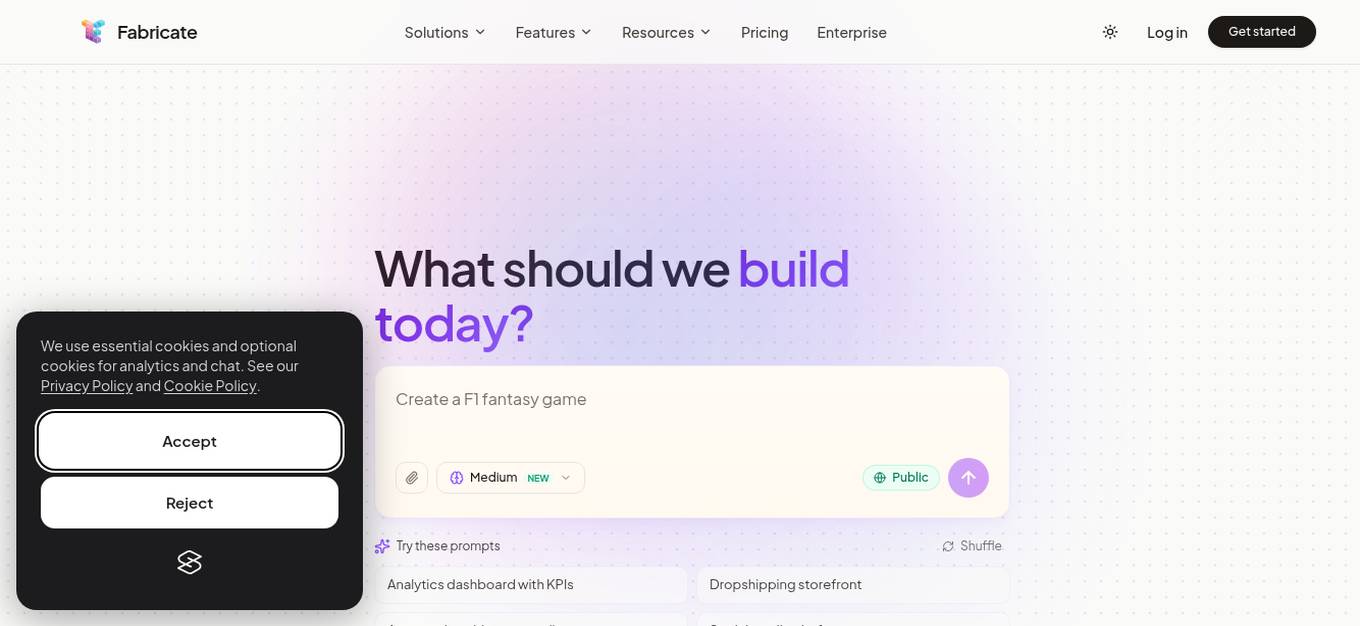
Fabricate
Fabricate is an AI full-stack app builder that empowers users to create a wide range of applications quickly and efficiently. With Fabricate, users can build anything they imagine and launch their projects to market faster than ever before. The platform offers a user-friendly interface and a powerful set of tools to streamline the app development process, making it accessible to both beginners and experienced developers. Fabricate leverages AI technology to automate various aspects of app building, from design to deployment, enabling users to focus on their ideas rather than technical complexities.
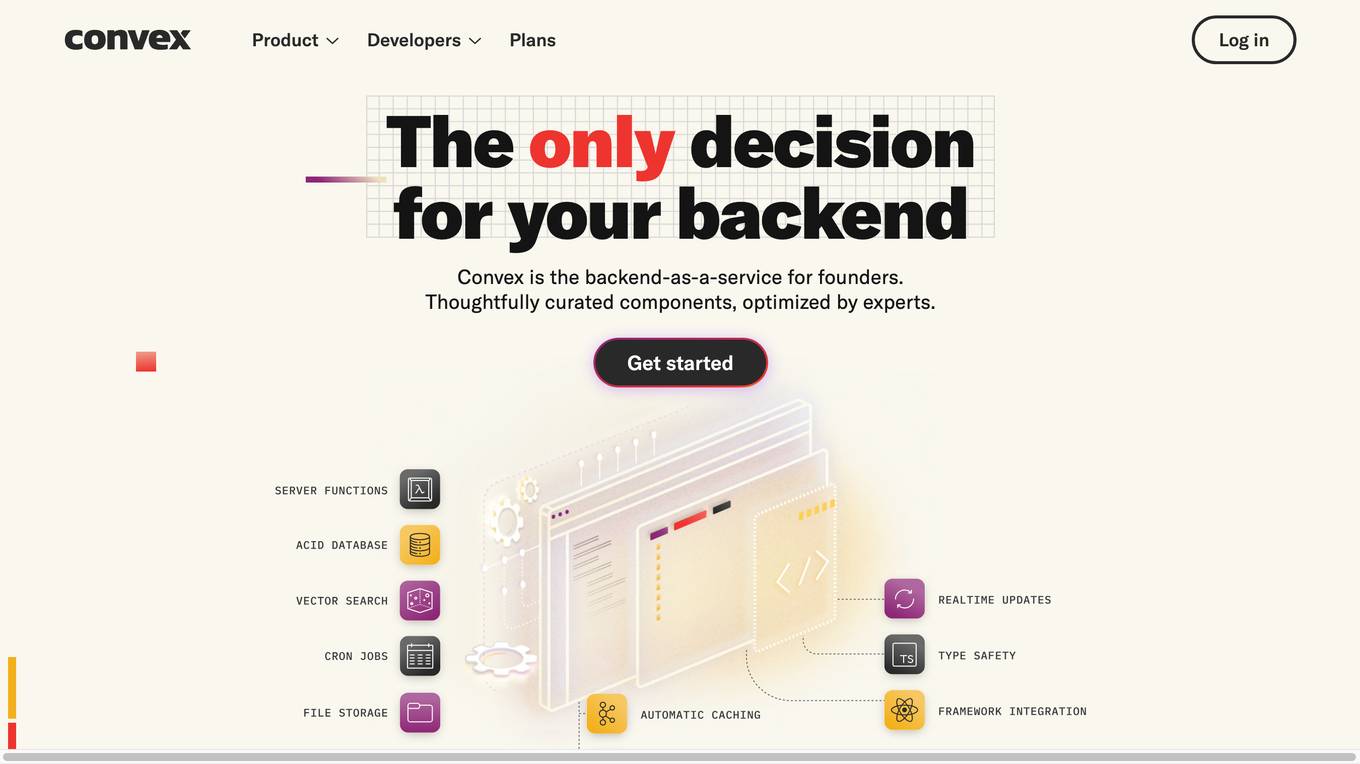
Convex
Convex is a fullstack TypeScript development platform that serves as an open-source backend for application builders. It offers a comprehensive set of APIs and tools to build, launch, and scale applications efficiently. With features like real-time collaboration, optimized transactions, and over 80 OAuth integrations, Convex simplifies backend operations and allows developers to focus on delivering value to customers. The platform enables developers to write backend logic in TypeScript, perform database operations with strong consistency, and integrate with various third-party services seamlessly. Convex is praised for its reliability, simplicity, and developer experience, making it a popular choice for modern software development projects.
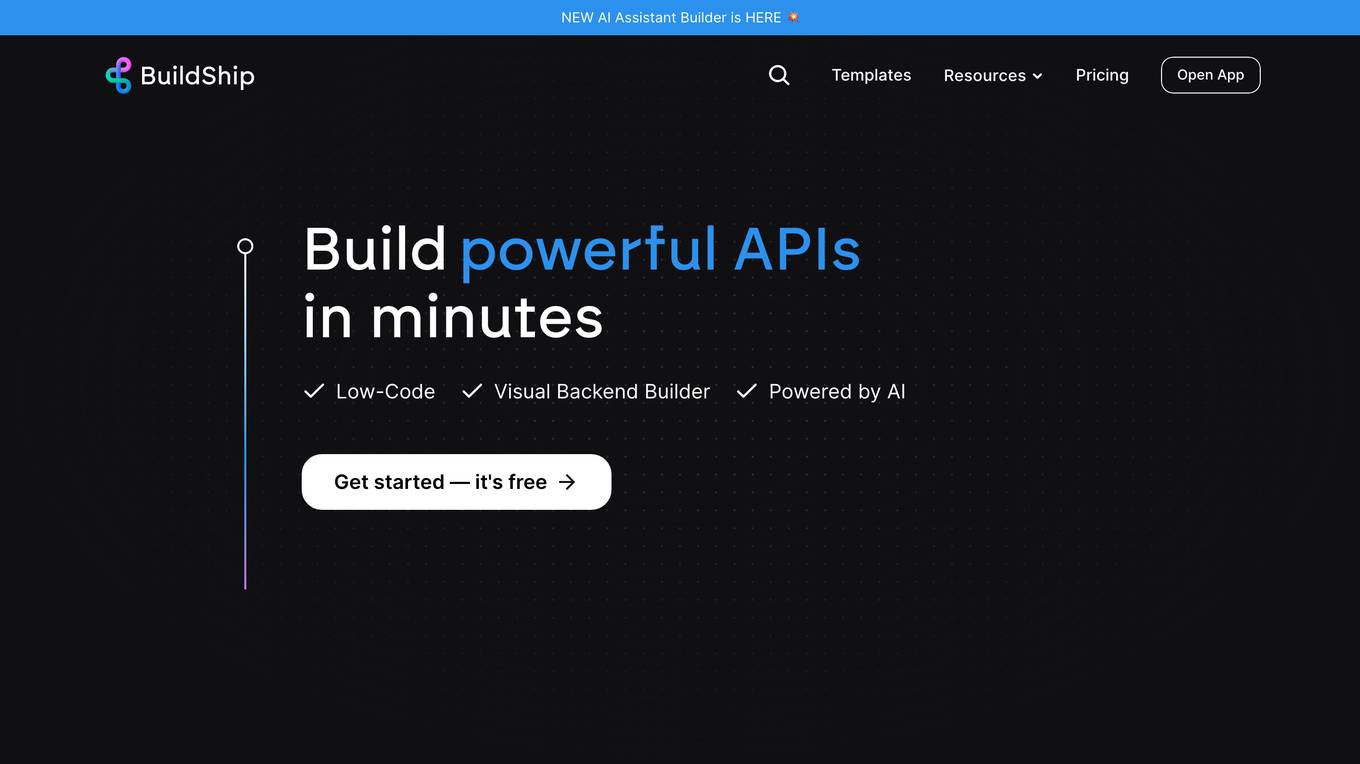
BuildShip
BuildShip is a low-code visual backend builder that allows users to create powerful APIs in minutes. It is powered by AI and offers a variety of features such as pre-built nodes, multimodal flows, and integration with popular AI models. BuildShip is suitable for a wide range of users, from beginners to experienced developers. It is also a great tool for teams who want to collaborate on backend development projects.
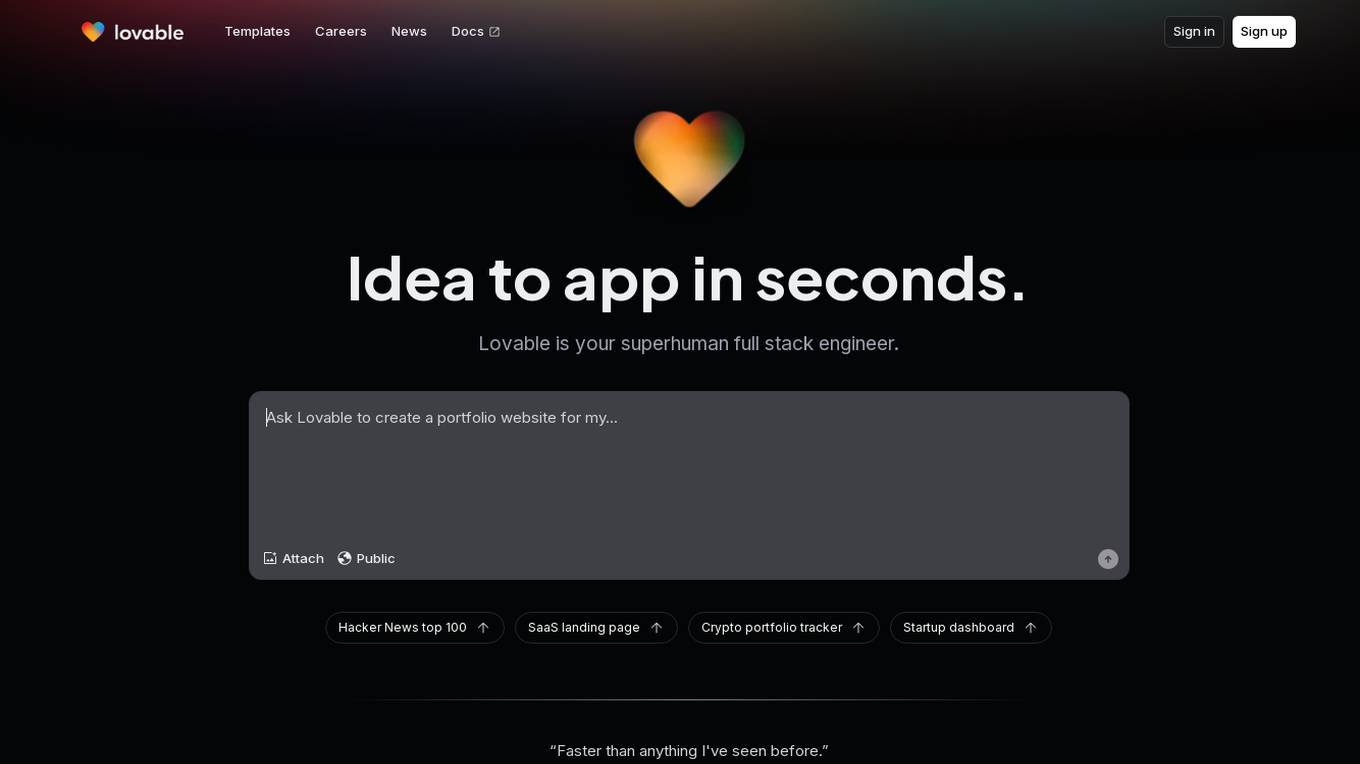
Lovable
Lovable is an AI-powered application that allows users to describe their software ideas in natural language and then automatically transforms them into fully functional applications with beautiful aesthetics. It enables users to build high-quality software without writing a single line of code, making software creation more accessible and faster than traditional coding methods. With features like live rendering, instant undo, beautiful design principles, and seamless GitHub integration, Lovable empowers product builders, developers, and designers to bring their ideas to life effortlessly.
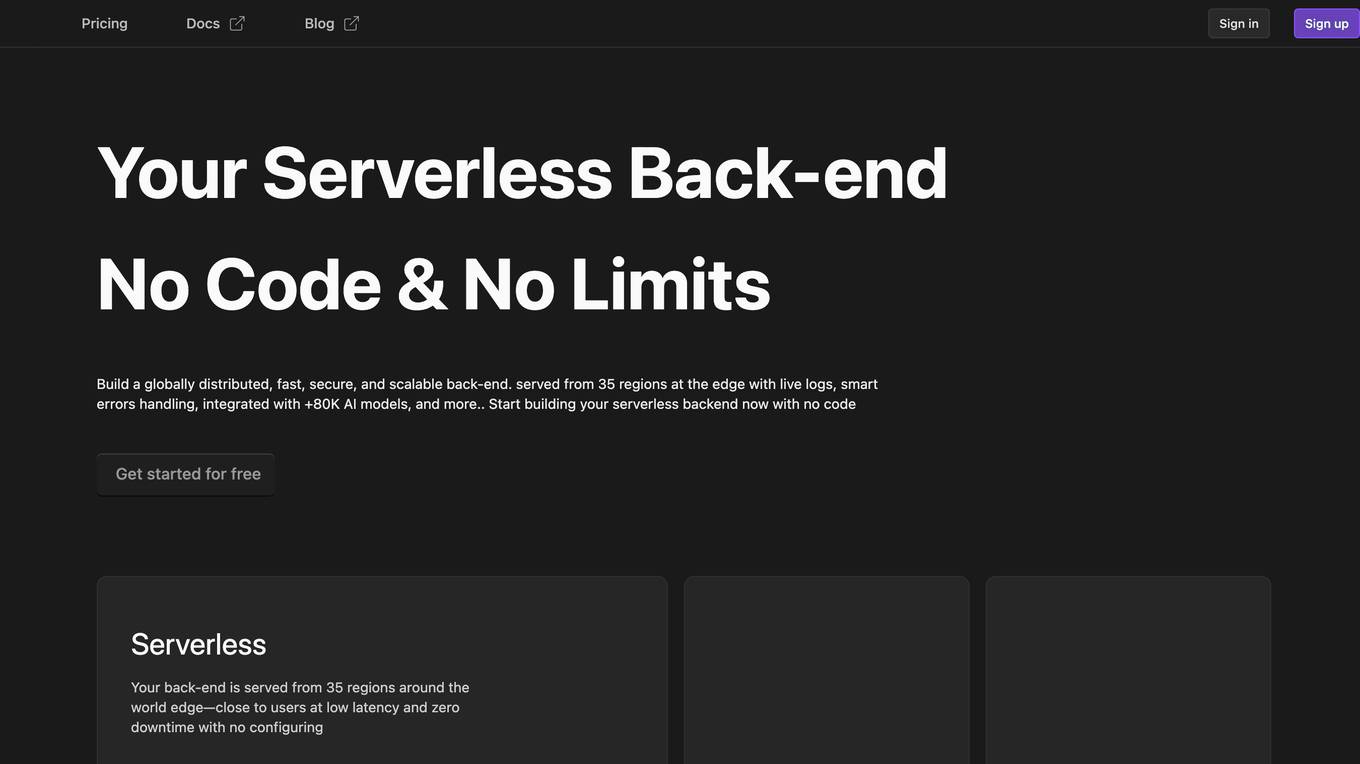
Koxy AI
Koxy AI is an AI-powered serverless back-end platform that allows users to build globally distributed, fast, secure, and scalable back-ends with no code required. It offers features such as live logs, smart errors handling, integration with over 80,000 AI models, and more. Koxy AI is designed to help users focus on building the best service possible without wasting time on security and latency concerns. It provides a No-SQL JSON-based database, real-time data synchronization, cloud functions, and a drag-and-drop builder for API flows.
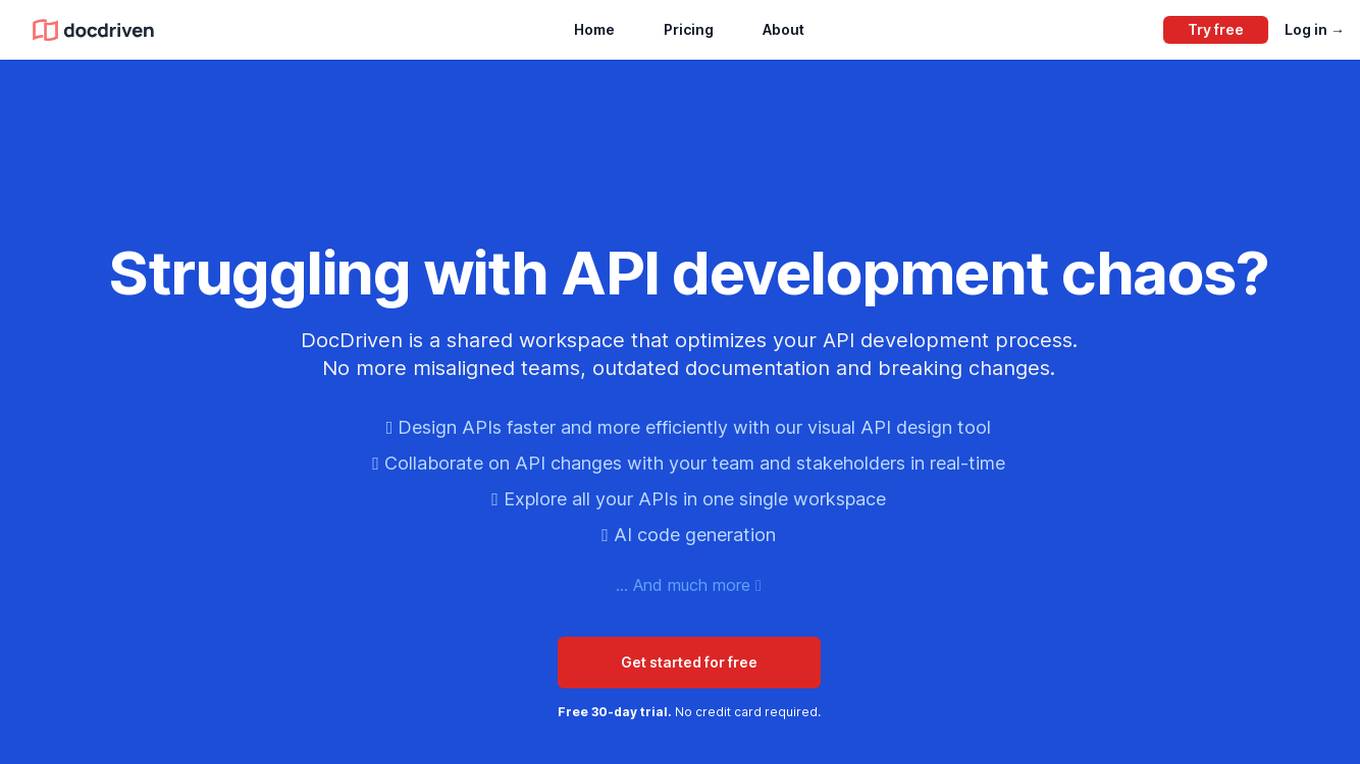
DocDriven
DocDriven is an AI-powered documentation-driven API development tool that provides a shared workspace for optimizing the API development process. It helps in designing APIs faster and more efficiently, collaborating on API changes in real-time, exploring all APIs in one workspace, generating AI code, maintaining API documentation, and much more. DocDriven aims to streamline communication and coordination among backend developers, frontend developers, UI designers, and product managers, ensuring high-quality API design and development.
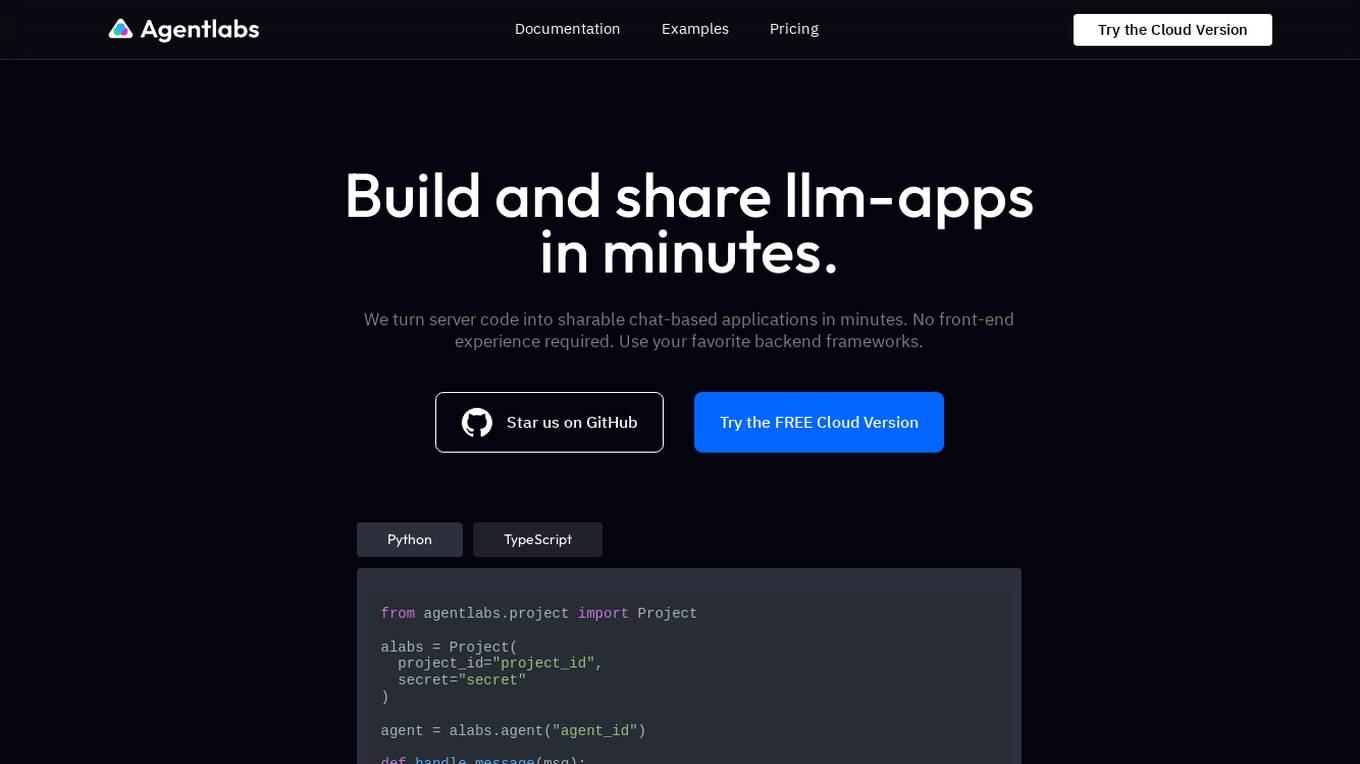
AgentLabs
AgentLabs is a frontend-as-a-service platform that allows developers to build and share AI-powered chat-based applications in minutes, without any front-end experience. It provides a range of features such as real-time and asynchronous communication, background task management, backend agnosticism, and support for Markdown, files, and more.
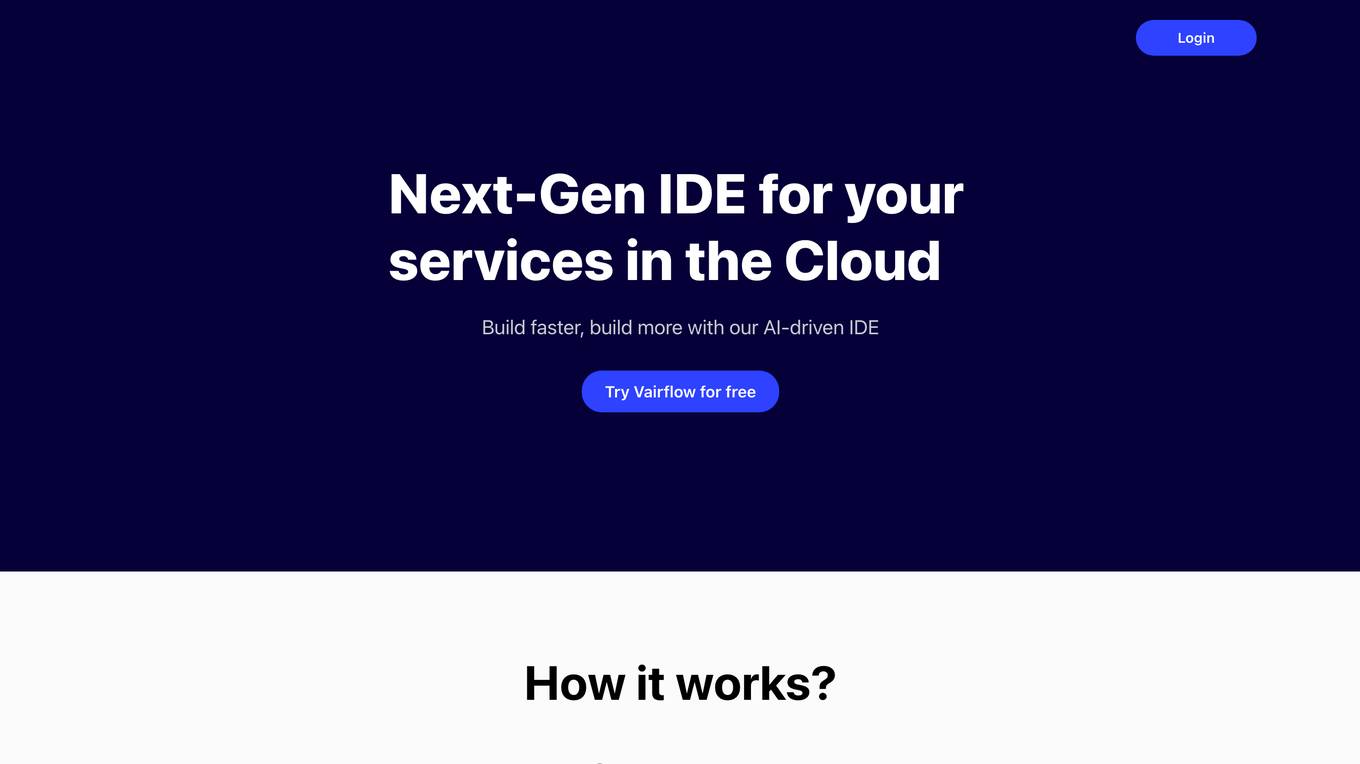
Vairflow
Vairflow is an AI-driven Integrated Development Environment (IDE) that empowers developers to build faster and more efficiently. It simplifies complex ideas into components, allowing seamless development and deployment of backend microservices, web UI, and mobile app UI. With upcoming AI features like code generation, completion, and explanation, Vairflow aims to enhance the coding experience. The platform also offers flexible deployment options, cost-effective usage, and seamless collaboration, ensuring no vendor lock-in and pay-as-you-go pricing model.
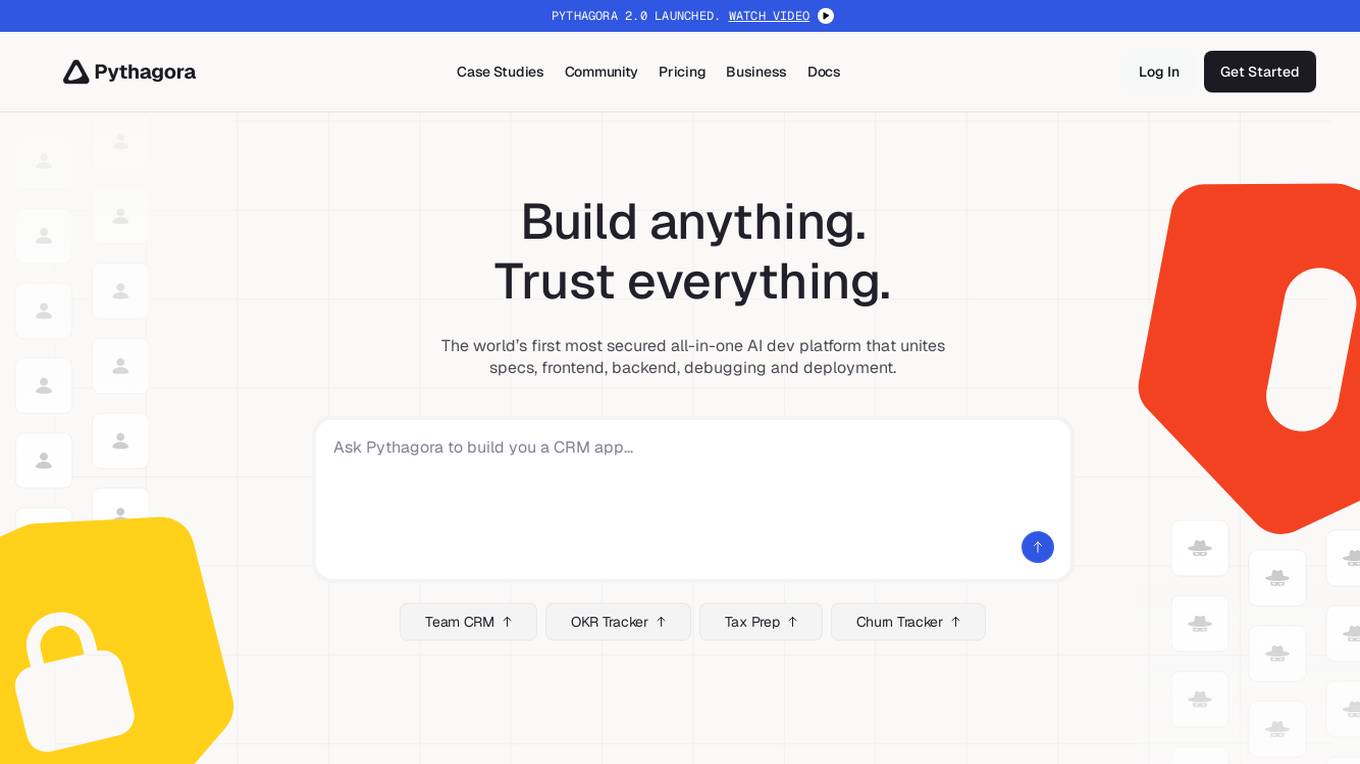
Pythagora
Pythagora is the world's first all-in-one AI development platform that offers a secure and comprehensive solution for building web applications. It combines frontend, backend, debugging, and deployment features in a single platform, enabling users to create apps without heavy coding requirements. Pythagora is powered by specialized AI agents and top-tier language models from OpenAI and Anthropic, providing users with tools for planning, writing, testing, and deploying full-stack web apps. The platform is designed to streamline the development process, offering enterprise-grade security, role-based authentication, and transparent control over projects.
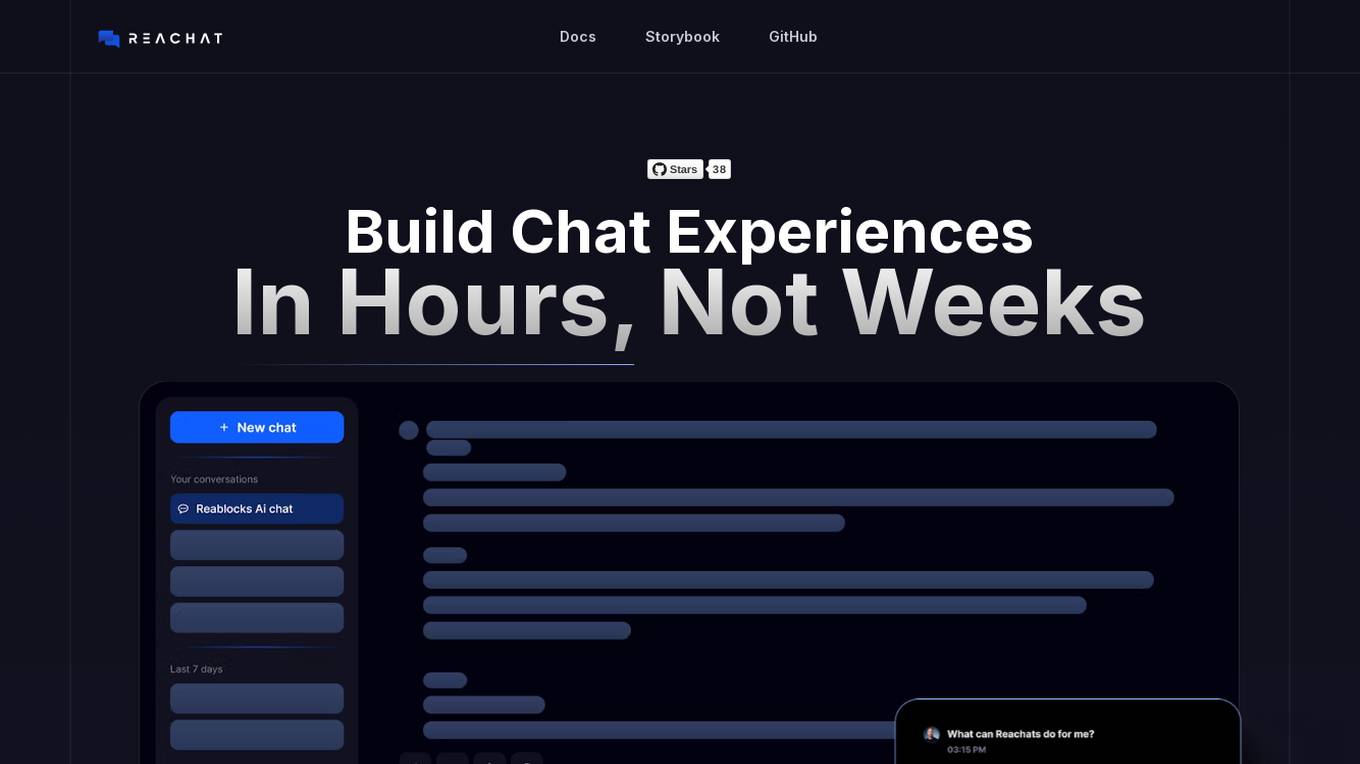
Reachat
Reachat is an open-source UI building library for creating chat interfaces in ReactJS. It offers highly customizable components and theming options, rich media support for file uploads and markdown formatting, an intuitive API for building custom chat experiences, and the ability to seamlessly switch between different AI models. Reachat is battle-tested and used in production across various enterprise products. It is a powerful, flexible, and user-friendly AI chat interface library that allows developers to easily integrate conversational AI capabilities into their applications without the need to spend weeks building custom components. Reachat is not tied to any specific backend or LLM, providing the freedom to use it with any backend or LLM of choice.
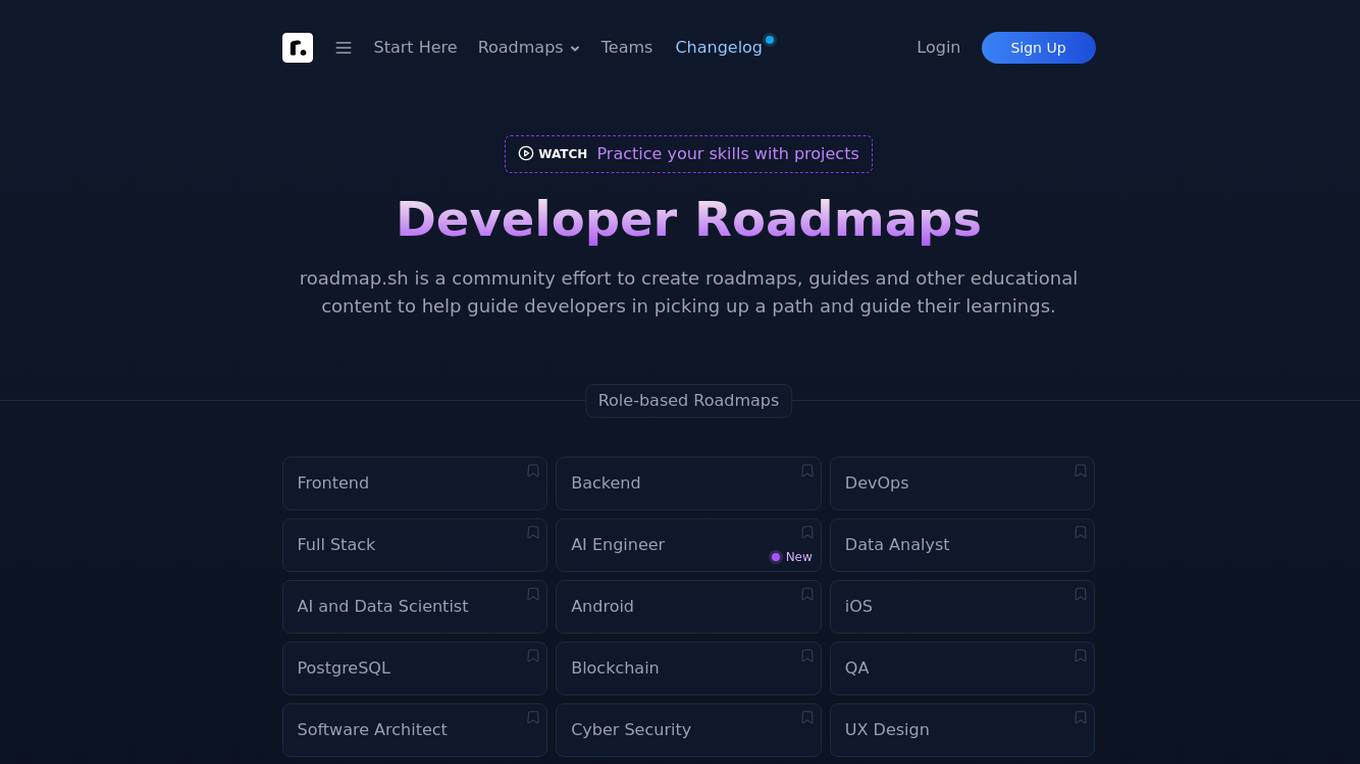
Developer Roadmaps
Developer Roadmaps (roadmap.sh) is a community-driven platform offering official roadmaps, guides, projects, best practices, questions, and videos to assist developers in skill development and career growth. It provides role-based and skill-based roadmaps covering various technologies and domains. The platform is actively maintained and continuously updated to enhance the learning experience for developers worldwide.
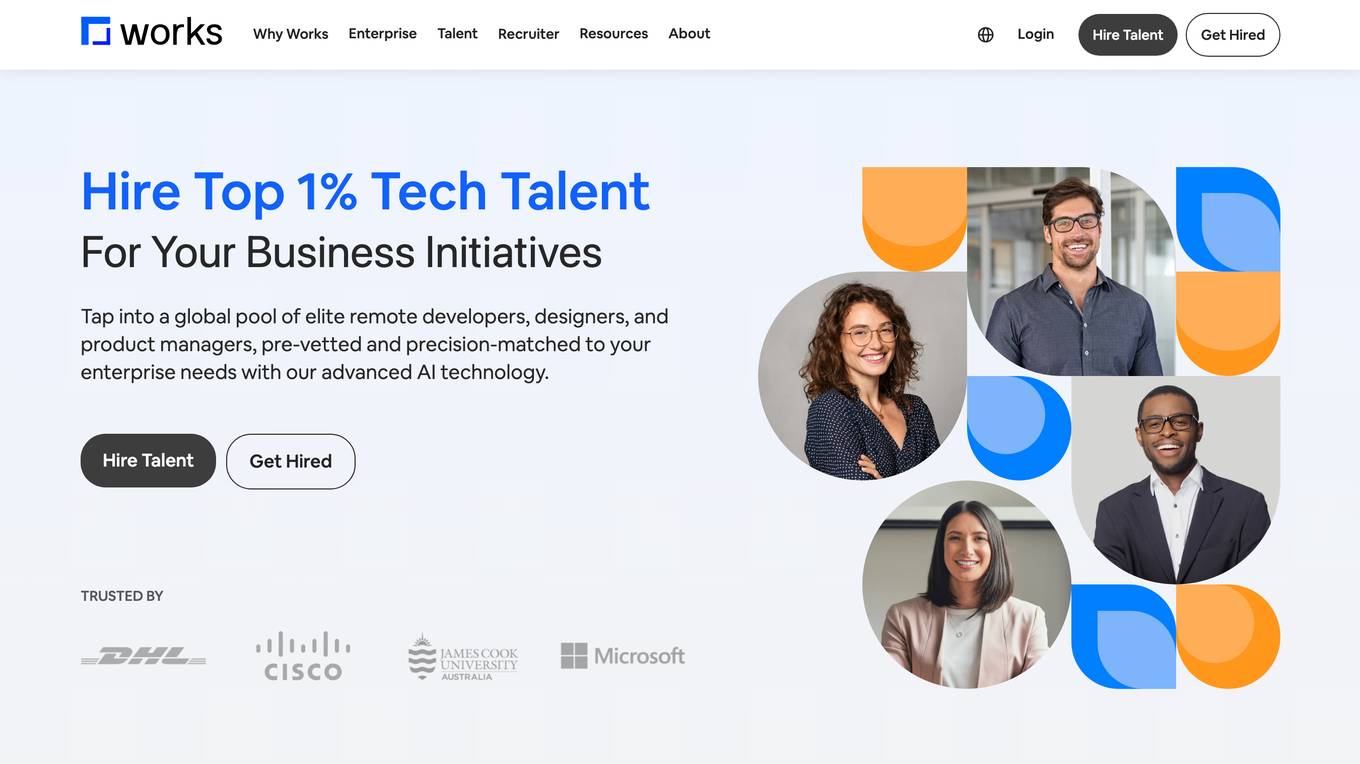
Works
Works is a platform that connects enterprises with the top 1% of remote tech talent. It uses advanced AI technology to ensure precision-matching of talent to project requirements, saving time and resources. Works offers transparent pricing with a flat 10% transaction fee and provides risk-free hiring with payment only when the work is completed to satisfaction.
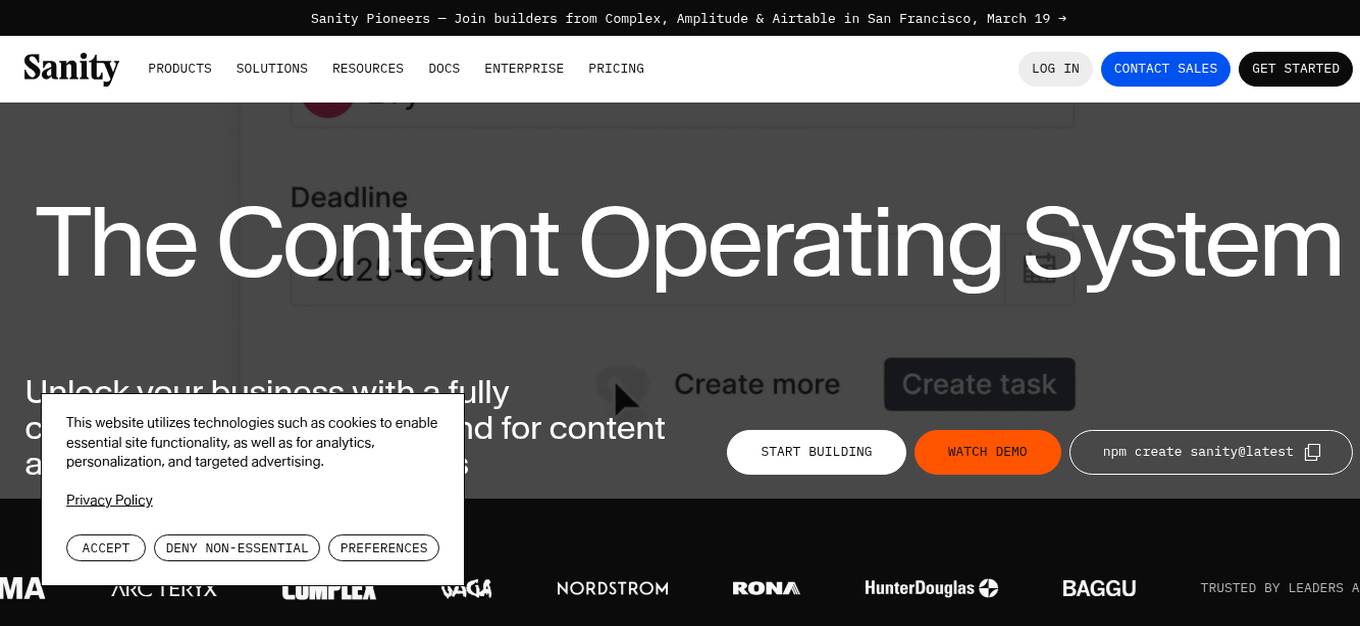
Sanity
Sanity is a content operating system that empowers developers and creators to deliver faster and at scale with AI applications and SDKs. It offers a fully customizable all-code backend for content applications and AI workflows. The platform provides features like AI-assisted, free-form writing, content backend, content lake, and agent actions to automate workflows. Sanity Studio, the most flexible headless CMS, allows real-time visual editing and customization with TypeScript and React. Users can build, scale, and ship content applications efficiently, collaborate seamlessly, and automate workflows with AI functionalities.
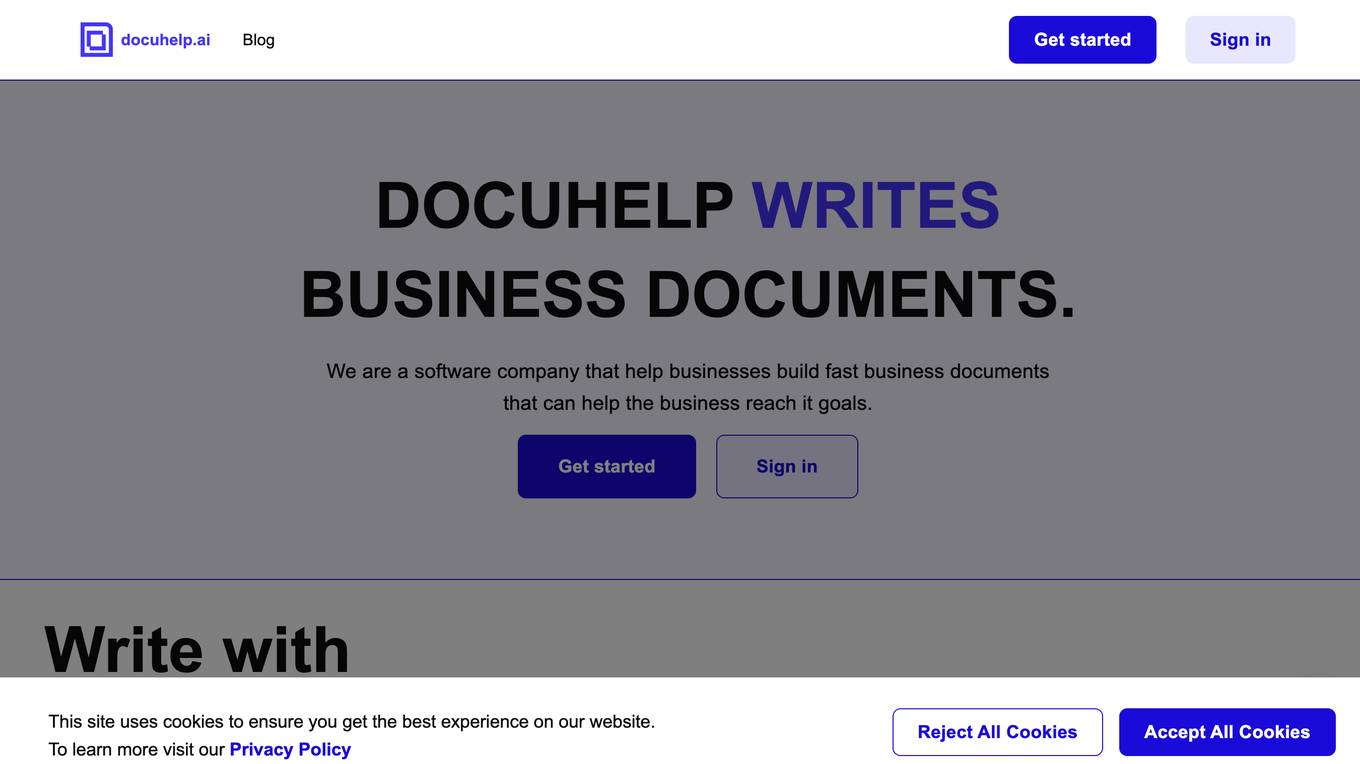
DocuHelp
DocuHelp is an AI-powered platform that enables businesses to effortlessly create professional-grade documents, reports, proposals, and sales pitches in a matter of minutes. It facilitates real-time collaboration among team members, eliminating the need for email chains and ensuring accuracy and efficiency. With industry-focused backend prompts, access to backend systems, and the ability to train models on company-specific data, DocuHelp offers a tailored solution for businesses seeking to enhance their document creation process.
0 - Open Source AI Tools
20 - OpenAI Gpts
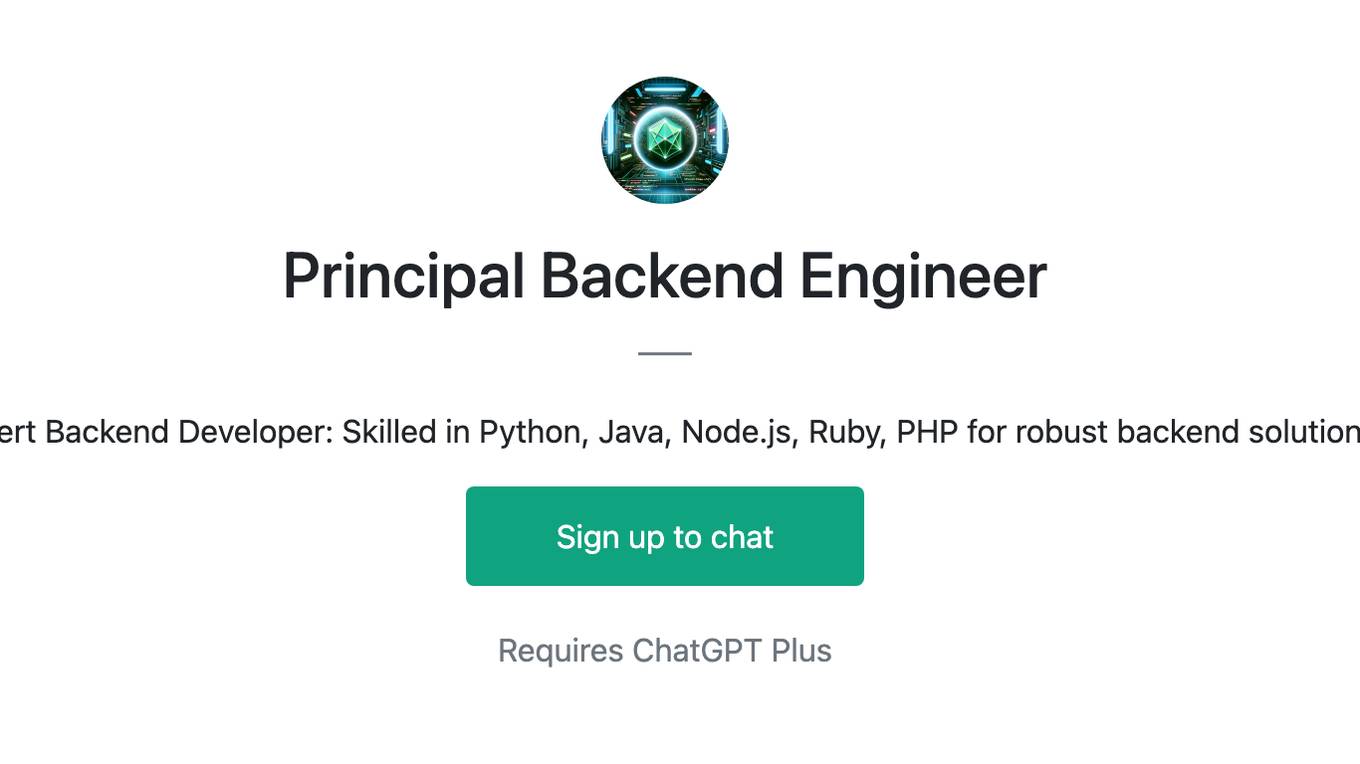
Principal Backend Engineer
Expert Backend Developer: Skilled in Python, Java, Node.js, Ruby, PHP for robust backend solutions.
![[latest] FastAPI GPT Screenshot](/screenshots_gpts/g-BhYCAfVXk.jpg)
[latest] FastAPI GPT
Up-to-date FastAPI coding assistant with knowledge of the latest version. Part of the [latest] GPTs family.
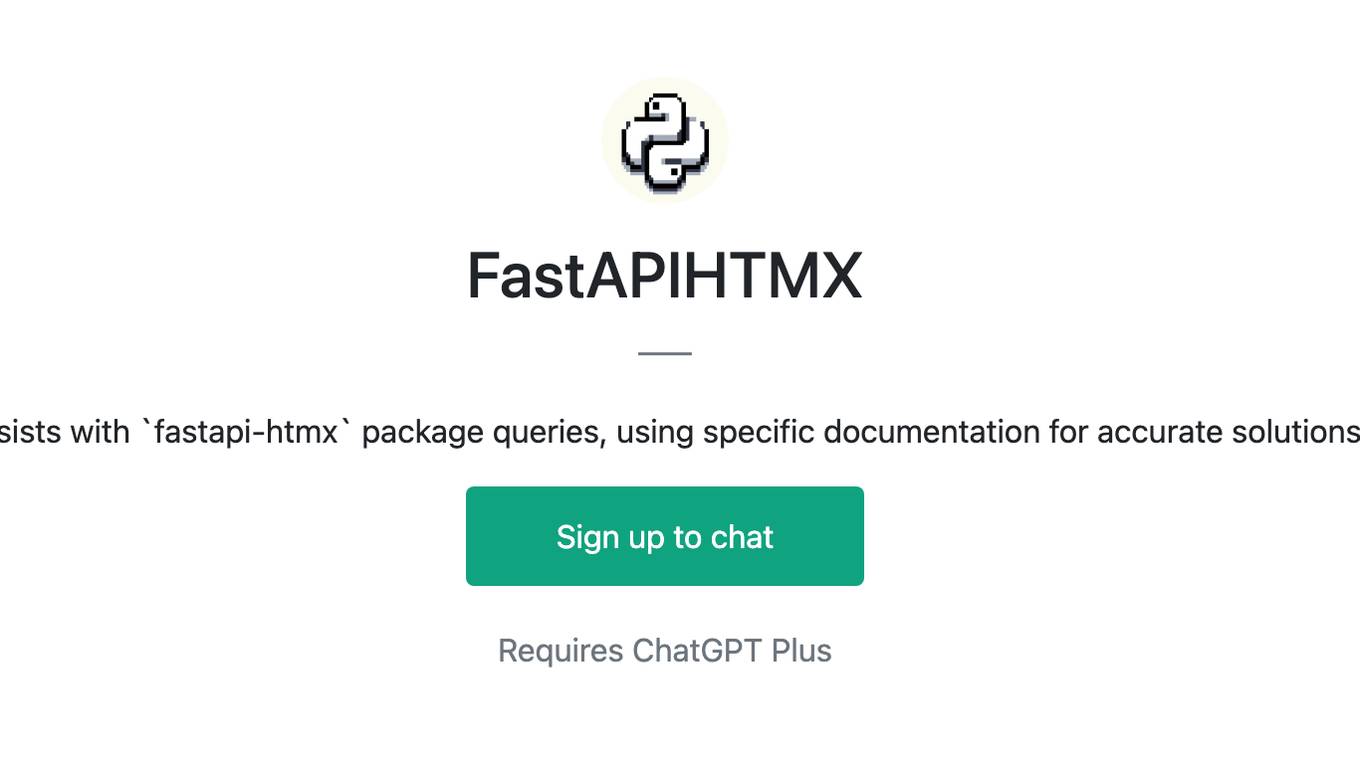
FastAPIHTMX
Assists with `fastapi-htmx` package queries, using specific documentation for accurate solutions.
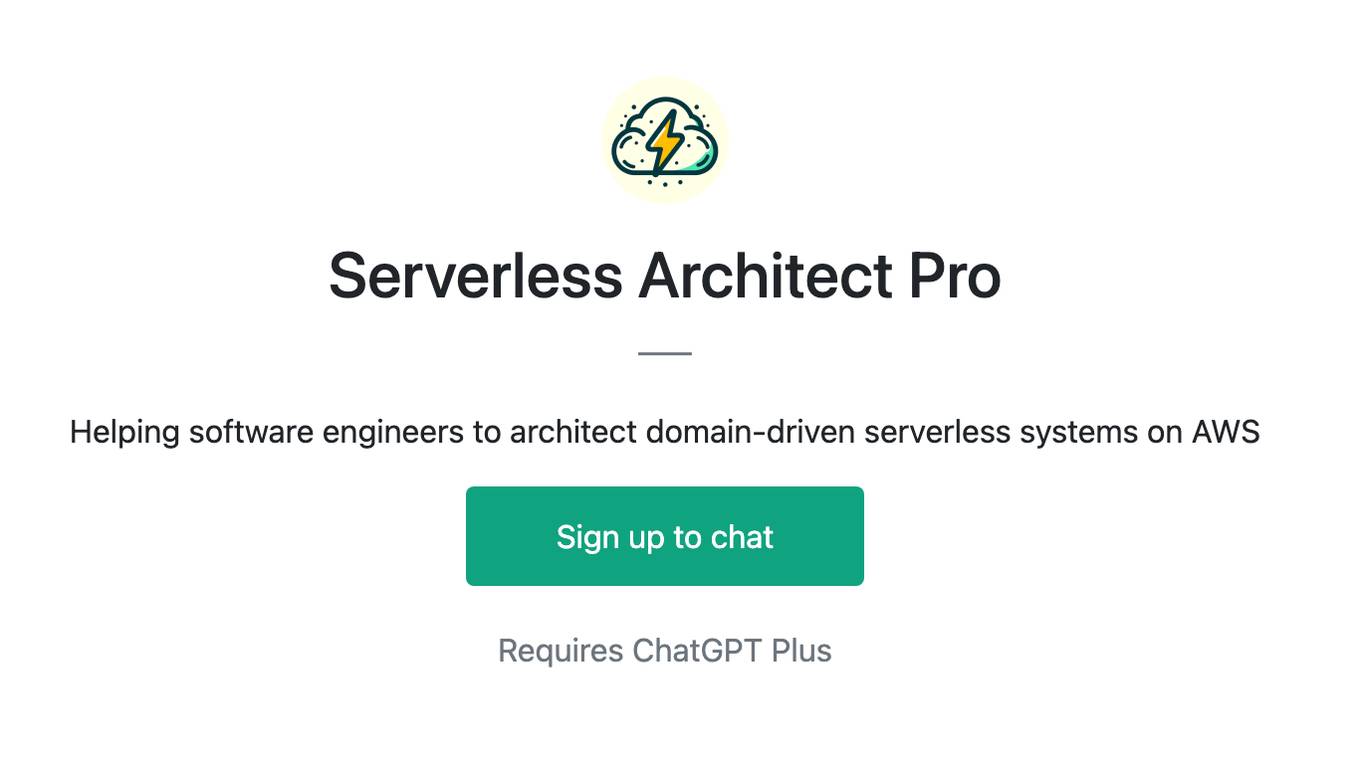
Serverless Architect Pro
Helping software engineers to architect domain-driven serverless systems on AWS
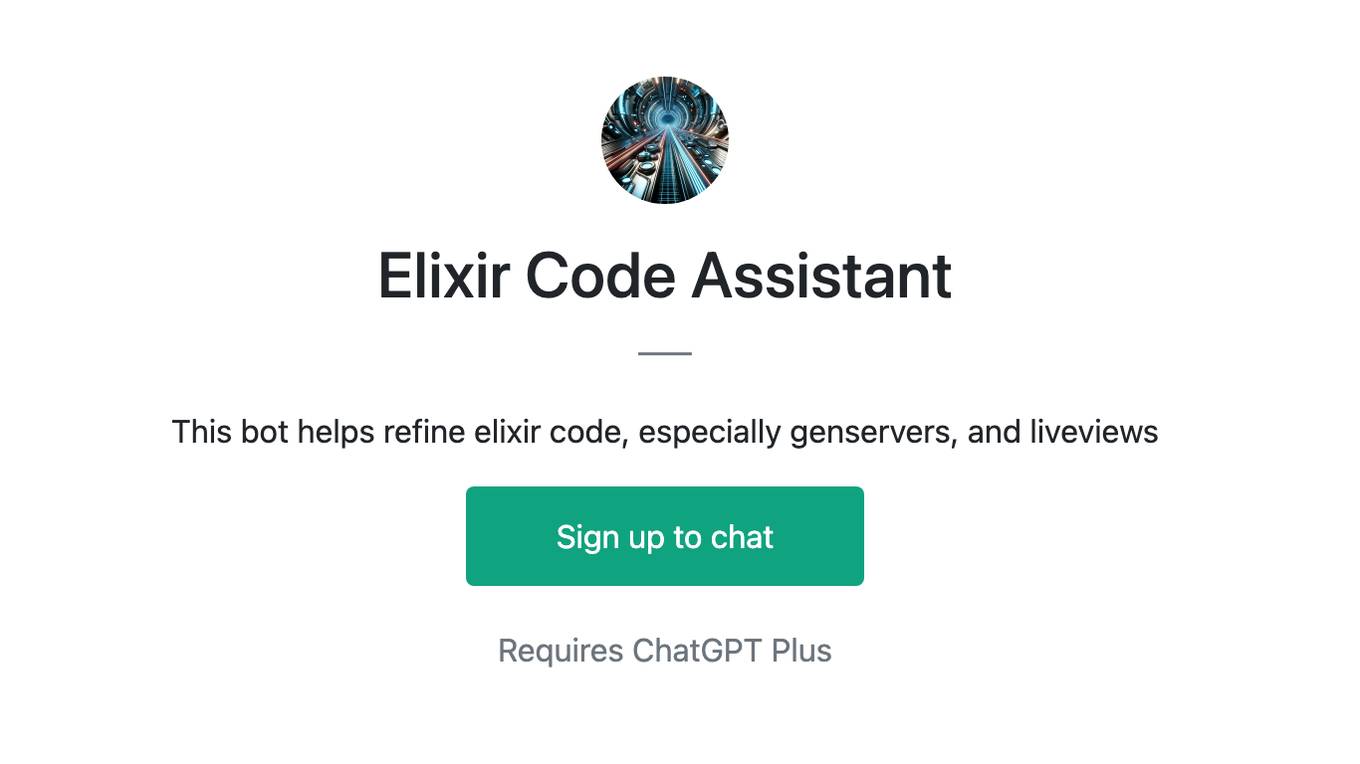
Elixir Code Assistant
This bot helps refine elixir code, especially genservers, and liveviews
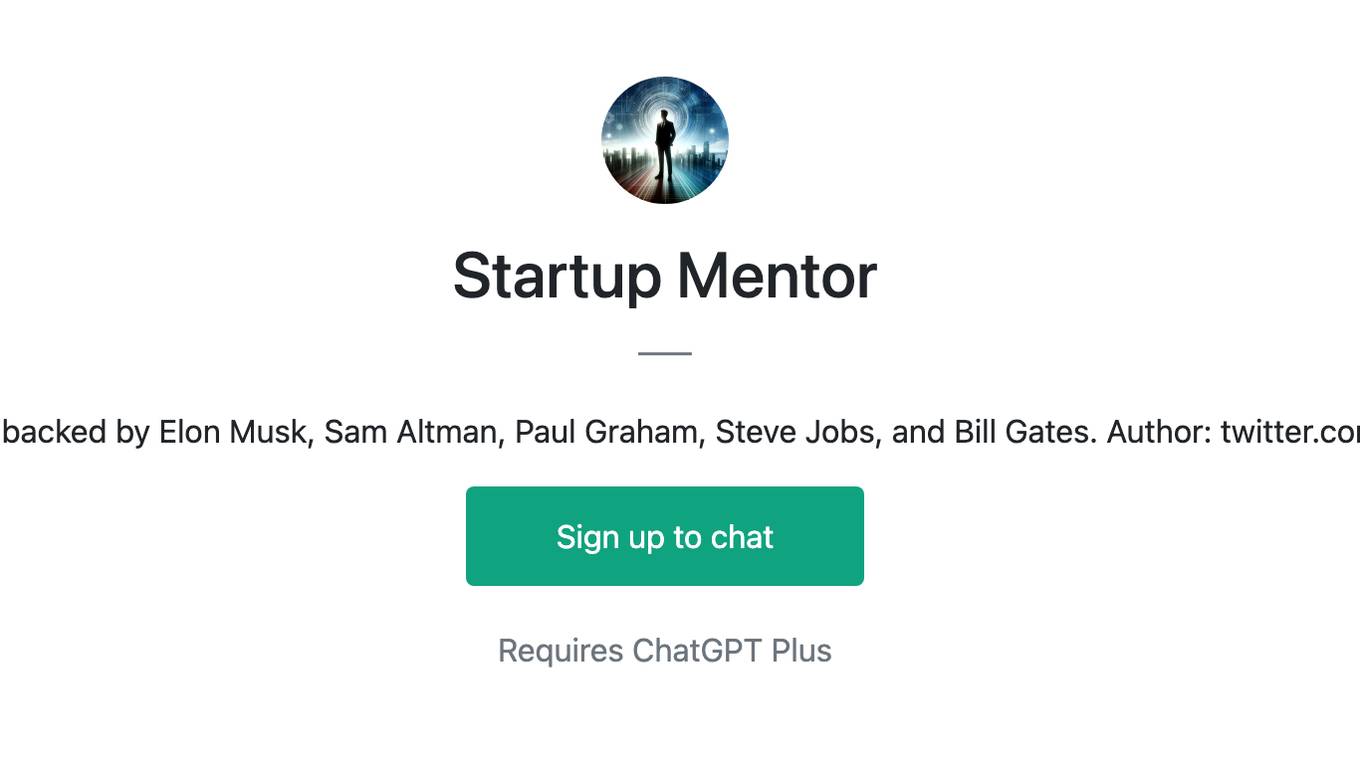
Startup Mentor
Your startup mentor backed by Elon Musk, Sam Altman, Paul Graham, Steve Jobs, and Bill Gates. Author: twitter.com/HeySophiaHong
